Balkan Beats
A BIMONTHLY MAGAZINE BY THE VOLUNTEERS OF THE UNITED SOCIETIES OF BALKANS
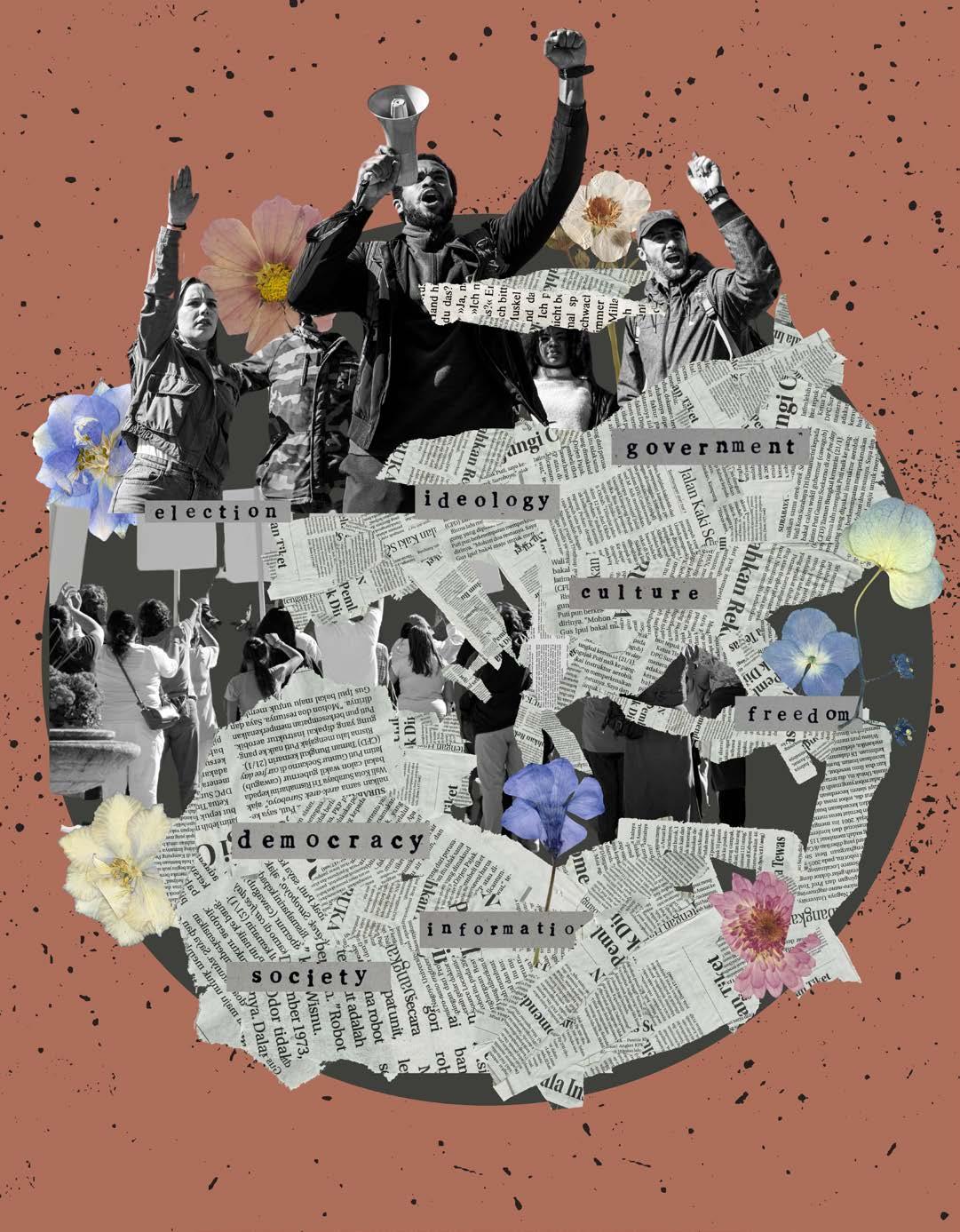


“
Dear readers,
Finally, here it is: the 49th episode of our magazine. Putting it all together wasn’t exactly a walk in the park. It started with both of us questioning if we were really cut out for the editor job (probably because our predecessors, Leene and Alina, were such tough acts to follow - hi to you both).
Luckily, we quickly came up with loads of ideas, and our team had our backs, which really boosted our confidence.
Then came our first magazine meeting. We tossed around ideas for titles and topics, and we were thrilled that so many people were actually invested and wanted to write. Despite some initial disagreements, we managed to find a compromise that gave each of us the freedom to write about what we felt passionate about.
The writing process had its challenges. We had our doubts and often felt a bit overwhelmed with the editor workload. But in the end, we
Luise Meerheim, Alix Ibargrew into our roles and learned to tackle the obstacles that came our way.
And now, “Global Puzzles - Local Pieces” is here, offering up another diverse range of topics: from personal stories to political analyses and even some poetry. The main focus remains the same: exploring politics and activism, both locally and globally.
We invite you to dive into the magazine and think about what it means to get political and be political.
Explore geopolitics and global risks, read up on current events, and get a glimpse of local history and initiatives through photo stories.
Remember, your own commitment is crucial in making the world a fairer place. Speak up against injustice and stand up for what’s right.
Yours truly,
Luise and Alix :)
United Societies of Balkans is a Non Governmental Organization, founded in Thessaloniki in 2008, by a team of active young people. The organization was created as a response to the pressure of constant changes in the Balkan and Eastern European region and under the need for the creation of a better social environment. Key areas of the organization’s activities concern the defense of human rights, the organization of youth exchanges and training courses, which will bring young people from Balkans and Europe together, the organization of local educational seminars and multimedia production (webradio, videos, documentaries).
UNITED SOCIETIES OF BALKANS, NGO 8, Delmouzou str., Thessaloniki
Tel./Fax: +30 2310 215 629 | www.usbngo.gr
Main goals of the organization
• To promote the values of non formal le- aring,volunteering, active citizenship and democracy for the creation of a better future for European youth.
• To promote human rights, solidarity and respect for diversity.
• To build healthy cooperation bridges between countries of the Balkan area and that of Eastern Europe with the rest of Europe.
• To locate and multiply the special cultural attributes of our societies.
• The break down of prejudices and stereo- types between Balkan countries.
The United Societies of Balkans, NGO, does not necessarily share the opinions expressed in Balkan Beats. It is illegal to reproduce any part of this publication without referring to the source.

More than 60 countries are called to vote this year for either national or local elections. 2024 is the biggest global election year in history, and the results will influence numerous aspects of international dynamics. Considering that we are facing political, environmental and social crises in different parts of the planet, and current wars, the context of this year is particularly tense. That’s why it is crucial to understand the dynamics of some specific countries holding elections this year, whether due to their global impact or their internal particularities.
One of the main questions many people might have is “Again these two?”, referring to Joe Biden and Donald Trump. The will of Biden to repeat as President of the USA, as well as the lack of serious alternatives in the Republicans, make them compete after four years again.
The U.S.A. is the third-largest country in the world and consists of 50 states with a population of over 334 million, having a Federal presidential constitutional republic. On the 5th of November 2024, citizens from every state are
called to vote for the President and the Vice President they want to be represented by.
The U.S. is involved in many worldwide conflicts, and the results of the elections are going to have a global impact. The Gaza War, the Ukrainian war due to the tense relationship with Russia and the migrants trying to cross the U.S.-Mexico borders are some of the international affairs that could be affected by the voting result. Given these factors, these elections attract worldwide attention, as people anticipate how the outcome will impact future international relations.
The statements regarding the Ukrainian-Russian war by Ukrainian President Volodymyr Zelensky and former U.S. President Donald Trump offer insight into the potential impact of future leadership on the conflict. Zelensky emphasised “If the policy of the next presidentwhoever he is - will be different toward Ukraine, colder or more inward-oriented… then I think these signals will greatly affect the course of
the war”. Meanwhile, Trump’s states that he would end the war within 24 hours if he was elected, even though he doesn’t clarify how.
A s for the Gaza war, Trump has always critiqued Biden’s handling of the situation. Even though a New York Times–Siena College poll from December 2023 reveals that young voters are leaning towards Trump because of Biden’s backing of Israel, his historical track record and ambiguous stance suggest that his election wouldn’t necessarily guarantee increased safety for Palestinians. Trump’s past policies offer little difference from Biden’s approach. His remarks focus on personal narratives rather than constructive engagement, exploiting discontent with Biden’s handling of the conflict. This is exemplified by Trump’s Islamophobic remarks, suggesting barring Palestinians from the US, as well as his pro-Israel “peace-plan.” His claim that the war wouldn’t occur if he were in office adds to his strategic ambiguity, potentially bolstering his electoral prospects. While Trump may exploit dissatisfaction with Biden’s han -
 © Library of Congress Prints and Photographs Division Washington, D.C.
© Library of Congress Prints and Photographs Division Washington, D.C.
dling of the conflict for electoral gain, his presidency wouldn’t necessarily lead to improved conditions for Palestinians.
The European Union consists of 27 states, mainly in the European continent. The outcomes of the elections will influence not only the approximately 448 million people living in it but even more. The 10th parliamentary elections of the E.U. will be held between 6th and 9th of June. Each country will select their representatives, a number of whom is determined by the population of the state. For the realisation of the elections, each country follows its own process.
L ately, the EU is going through many challenges such as the Russian invasion of Ukraine, the prices of the products which are conditioned by particularly brutal inflation in recent years, the environmental crisis, the migration crisis, the application of Brexit in 2021, and so on. On many occasions, these crises have created divisions among the members of the E.U. which can also explain the surge of the populist extreme-right. The biggest EU mission at this point is to regain trust and maintain cohesion among its members.
A lthough the European Parliament doesn’t hold the highest influence in EU foreign policy, the alignment of political groups post-election and its effect on national discussions in member states will greatly influence the European Commission and Council’s capacity to implement foreign policy decisions, particularly in advancing the next stage of the European Green Deal.
A ccording to the main polls, the leading parties will be the EPP and the Socialists. However, one of the biggest challenges in the upcoming elections will be the expected rise of the extreme right group: Identity and Democracy. In fact, if the extreme right overcomes the Liberals in third place, they will have an increasing influ -
ence in decisions and agreements. This could lead to a big alliance of the two big parties, the Liberals and the Greens.
While the response towards the war in Ukraine is not predicted to be changed, other decisions related to basic Human Rights, the cohesion of the Union (some of the extreme right parties are actually eurosceptic) or the humanitarian crisis in Gaza are at stake in this future elections.
From the 15th to the 17th of March, Russia is holding its new Presidential elections still immersed in the war in Ukraine. The fact that he has been President for 24 years and the ongoing conflict’s stagnation don’t appear to be reasons enough to question Putin’s leadership. It seems obvious that he will start a new six-year term in the Presidency.
I n contrast to electoral processes in other countries, such as the USA, where the results may significantly shape the nation’s path for the
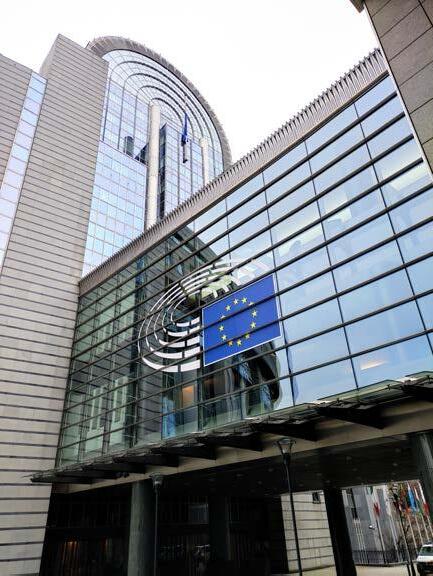 © Mariami Gatenashvili
© Mariami Gatenashvili

next few years, the presidential election in the largest country in the world may be seen as a mere formality. The strong support that Putin is getting from the population and the lack of opposition parties or new alternatives will reaffirm him in the Presidential seat until 2030 at least. In the unlikely scenario of Putin not having 50% of the votes on the first round, the possibility of opposition would be embodied by Nikolay Kharitonov (Communist Party), Leonid Slutsky (LDPR, conservative nationalism) and Vladislav Davankov (New People, liberals), that are for now expected to finish in second, third and fourth place in that order. As a curiosity, it will be the first election in which the populations of the Ukrainian territories now controlled by Russia can participate .
Putin will extend his presidency for another six years, reaffirming himself in the power and gaining time to keep the military operations in Ukraine without any relevant internal opposition. This establishes Russia as one of the ris-
ing powers in the new world order under his controversial leadership.
O n March 1st, Iran will conduct two different elections that hold crucial implications for the nation’s future: the Assembly of Experts’ and the Legislative ones. In 2023, the country made a historical agreement with their traditional enemies, Saudi Arabia, in order to normalise their relationship. However, since the last months of 2023 the situation has escalated in the region, with the conflagration of the war in Gaza and the criminal actions of Israel (Iran’s other rival in Middle East) against Palestine but also Lebanon, Syria or, more recently and shockingly, Iran itself. If we consider also the protests and rising of the internal opposition since 2022, these elections hold importance for elucidating the near future of the nation.
It is important to understand the political structure of Iran to be able to comprehend better its
© Gavriil Grigorov/AFP/Getty Images
way of function. The Supreme Leader, Ayatollah Ali Khamenei, holding this position since 1989, is surrounded by the Assembly of Experts (composed of 88 members that are guarantors of the Islamic law). One of the missions of this institution is choosing the Supreme Leader of the Republic. He is followed by the President of the Republic, currently Ebrahim Raisi, and the Islamic Consultative Assembly, elected the 1st of March, both supervised and controlled by the Guardian Council (12 experts in Islamic religion and Islamic law not voted in these elections).
The 1st of March, the Iranian population will also vote for new members of the Assembly of Experts’, considering the potential replacement of Ali Khamenei, who will turn 85 next April. Considered among the future candidates are his son Mojtaba Khamenei, the former President Hassan Rohani or even the current hold-
er of the position, Ebrahim Raisi. Both elections (also the ones for the Consultative Assembly) will be influenced by whether or not the Reformists, the main opposition group against the islamic system parties that have been in power since 1979, choose to participate. If they decide to take part in the process, the power and seats of the Principlists will be reduced. If not, they may secure all the seats but the legitimacy of the electoral process will diminish both within Iran and on the international stage.
These elections will decide the near future of the country, either keeping the current ideological and religious position or the beginning of a shift to bring Iran close to the West. The situation in the Middle East and in the whole world in general could be changed by the political context in Iran during and after the elections.
© Atta Kenare/AFP/Getty ImagesI t will probably not come as a surprise if I tell you that 2024 is considered the biggest election year in history, with around fifty countries going to the ballots.
S ocial media has played a crucial role in many elections over the last decade, but how did we get here? How did social media affect political communication and what are the consequences and threats to our democracies?
A s social media entered people’s daily life and gained attention and importance, the political practice has changed and adapted its communicative methods to this new medium. The role of political parties, which used to be the main connection between citizens and its representatives, has declined in significance. It has been replaced by online communication, somehow distancing local politicians from their territories.
Today’s political leaders are supported by professionals that curate their public image and communication online. Electoral campaigns carried out on social media platforms are very complex, they’re supported by data-driven scientific methods and communication tactics based on targeting specific audiences. Data analysts have gained importance as they study predictive models on citizens’ electoral behavior and define which messages need to target which audiences.
Most voters today do not have a strong political identity, so their vote is more volatile and
by Alessia Mancinosusceptible to change based on specific issues or topics. Consequently, electoral campaigns are no longer confined to a short specific pre-election period, but tend to be a constant state of permanent activity.
S ocial media creates echo chambers, or filter bubbles, that lead to the polarization of people’s thoughts. Inside these bubbles there’s no space for genuine debates among people that have diverse perspectives. As a result, the illusion of direct communication produces interactions characterized by the lack of empathy, a degeneration of public discourse and the lack of accountability of the users that produce certain contents.
A very common practice used in electoral campaigns on social media is “microtargeting”, which is when politicians target their audience and send personalized messages. This allows for different people to receive different messages, a practice that was not used before the social media era started. The political public debate has suddenly become more private, it reaches citizens’ phones and creates a narration that varies for different categories of people.
In this new landscape where fake news flourish due to social media platforms struggling to identify and remove them, the prevalence of data-driven campaigns varies. For instance, countries like Canada, the United States, and Australia have very few laws ruling on data protection while Germany, for example, is the country with one of the most restrictive legislation.
The Cambridge Analytica case involved the unauthorized collection of Facebook users’ data for political profiling and targeting during elections. It raised concerns about privacy, data misuse and the influence of digital campaigning on democratic processes.
The Cambridge Analytica case is a very interesting story that I highly recommend taking a look into. There’s a Netflix documentary called “The Great Hack” and several books that speak about this case. I will make a brief summary here.
Cambridge Analytica was founded in 2013 as the american affiliated company of SCL Group, based in the UK. Cambridge Analytica was working with citizens’ behavioral data to support specific candidates; in the USA they started campaigning for the Republican Party during the 2014 half mandate elections, allowing 75% of the candidates they were supporting, to win.
B ehavioral data is all the information gathered from what we do with our smartphones and other smart objects we own. The extraction of personal information is done thanks to our (usually passive) acceptance of cookies on the websites we visit. This information is the most valuable asset we’re giving to the companies that allow us to use their platforms “for free” (our data is the price we actually pay).
B etween 2015 and 2016 Cambridge Analytica collected 87 million Facebook users’ data, studied their personality type and created personalized content for each category. This way the social media electoral campaign started from the bottom up, first learning what people need to hear/read/watch and then sending out personalized content with different messages coming from the same party/politician.
C ambridge Analytica was detecting the people whose personalities were more emotional-

ly unstable, inclined to believe conspiracy theories, and would send them messages, articles and invitations to Facebook groups that would increase their level of anger and frustration. For Facebook this was important in order to increase people’s activity online, for Cambridge Analytica it was important to influence people’s votes.
Cambridge Analytica worked for Trump’s electoral campaign and there are doubts about its work for the Brexit campaign as well, both happening in 2016.
It’s impossible to say if and how Cambridge Analytica’s work actually influenced the results of the elections, but we have to question the methods used and where to set the boundaries - a job that also politicians and legislations have to do.
The 19th edition of “The Global Risks Report 2024” released in January 2024 by the World Economic Forum, surveyed around 1.500 experts across different sectors. It highlighted that misinformation and disinformation are perceived as the first global risk within the next

two years, with societal polarization being the third most important risk.
This year the widespread use of misinformation and disinformation may play a particular role in undermining the legitimacy of newly elected governments.
I n response to misinformation, governments could increasingly control information based on what they determine to be “true”, but this solution could also be risky, as every democratic country measures its “democratic level” also based on how free their journalists are to write what they want.
The use of artificial intelligence in content creation on social media intensifies the spread of fake news, as it’s still difficult to detect videos, audios and images created by AI. The big tech companies like Meta, TikTok, Google, are requiring users to disclaim when a content has been created by AI, but there are already many examples where this rule hasn’t been applied.
The only way to protect fair elections is by having stricter control over social media platforms and websites’ use of citizens’ data. One broad example is the General Data Protection Regulation that came into force in 2018, giving the European Union quite strict legislation on data protection. Platforms like Meta and TikTok for example can access a smaller amount of data in the European Union than they can do in the USA. In electoral campaigns, platforms need data for personalized content. Without access to your data, they can’t target you, allowing you to critically analyze politicians’ messages and shared content.
Today’s use of AI for content creation is a problem in terms of transparency of democratic elec-
tions. In December 2023 the European Parliament and Council reached an agreement on the AI Act. The aim of this Act is to make sure that all the AI systems used inside the European Union align with the values and rights of the EU, ensuring human control, security, privacy, transparency, non discrimination and social and environmental well being. As the AI Act still needs to be voted on by the European Parliament, it’s expected to be put in practice from 2026.
This is an important step for Europe, but the delay in enforcing the AI Act poses a significant risk particularly for this year’s elections, as they will remain unprotected until the implementation of the law. Democratic processes are too slow compared to the advancement of technology, so despite the importance of legislations, if they’re not applied fast, we will keep missing on opportunities for better protection.
What can we do?
Understanding the techniques of microtargeting and how political campaigns work on social media can be helpful to pay more attention to what we consume online. Learning about the importance of data protection is key for preventing the collection of our data. One simple thing we can do is for example avoiding accepting cookies on the websites that offer us the option to decline. Cookies will store our data and not allowing it is already a small but important step.
Gaining access to valuable information is crucial, and to achieve this we must dedicate time to reading and educating ourselves. In a world that always seems in a rush, taking the time to read well written articles or watch documentaries, listen to conferences etc, is key for critical thinking and understanding and therefore to make us better citizens in our democracies.
The relation between image and politics has always been a subject of interest for academicians of different fields, such as sociology, politics, and visual studies. The last decade has seen a uniformization of the political visual aesthetic around the world, which can be explained as one of the consequences of the standardization of populist rhetoric in the worldwide political landscape.
by Alix IbarThe main characteristics of a populist discourse
There are different opinions on the “populism” word etymology, here it will be considered as a political communication strategy used by both far-right and far-left political parties. It’s characterized by the goal to mobilize popular support through the portrayal of “them” (the system, the media, the elite, the migrants, etc…)
 © Daniel Mayrit
© Daniel Mayrit
versus “us” (the people, citizens of one nation). Populist leaders claim to be the true representatives of the populace and denounce those who are perceived to be against the people’s interests. Populist speeches often avoid nuance and complexity in favor of simple, direct messages that touch the spectators’ emotions . Discourses rooted in fear, combativeness and group identity rely on emotional rhetoric. Reality is often presented in a dichotomous manner to facilitate the engagement, and the leaders present themselves as the only figure of a radical change to fight against a defined enemy.
With his work titled One of Yours, the Spanish artist Daniel Mayrit gives us an illustration of how populism started to infiltrate our collective imagination, by applying a specific visual language. Mainly using photography and digital manipulation as a primary medium, the artist has taken a performative approach by portraying himself as a politician in campaign. This choice is also visible on the way he is curating his exhibition. The corner where his work is presented is decorated like a campaign stand with blue, white and red balloons - which are the colors of most of the traditional parties - and banners with his face and the slogan : ”The people stand with Mayrit”. There is a stand where we can find flyers, masks of his face, and printed versions of his manifesto, also available on his website.
The will of making his own image a pure product of consumerism is a strategy that has been used by some politicians like Donald Trump with the phrase “You’re fired !” that has been reused on t-shirts, cups, and posters, during his campaign, becoming this way a pop-culture
“Politicians are selling their image and their ideas like it was a commercial product, with short punchlines that catches the consumers attention. ”
reference figure. This marketing strategy is an aspect of the transformation of the nowadays political rhetoric, influenced by a capitalistic society. Politicians are selling their image and their ideas like it was a commercial product, with short punchlines that catches the consumers attention. This trend has also been accelerated by the inevitable use of social media for politicians in order to reach a larger public. This practice imposes a faster, even instantaneous, form of expression, which must convey a clear and impactful message in just a few words, allowing no further analysis or reflection.

 Photo extracted from a communication video of Kim Jong Un
Photo extracted from a communication video of Kim Jong Un
On Mayrit’s website, where most of his work is available, his project is divided into six different categories that show different aspects of the populist aesthetic. In “The chosen one”, he presents himself with open arms, often alone in a wide shot, in which we can recognize elements of identifiable symbols such as the Corcovado. He uses the image of a messianic leader coming to save the country, to appear like an untouchable figure. He reused a picture of the North Korean leader, Kim Jong Un, riding a white horse in the snow which directly mobilizes a heroic fantasy aesthetic.
In “The Everyman”, he is shown feeding a lamb, copying the picture of David Cameron, ex-prime minister of the US. Another photo within this category diverts the image of the Canadian Justin Trudeau cuddling baby pandas, to show

how this type of communication allows them to appear caring and close to the population.
In the category titled “The people’s favorite” he is representing the democratization of the very common practice of taking selfies with people on the street or in a political meeting. This became popular with Barack Obama during the 2012’s campaign. The goal of proving to the population that they are sharing the same habits and practices was a main part of his online presence. For example, he expressed his thoughts about a worldwide followed TV Show on Twitter just like any other fan and appeared as a result very approachable.
“ The Establishment’s foe” is a representation of how the distrust towards institutions is staged, by the very same people who incarnate it. Mayrit is presenting himself in a more combative posture, gagged in front of the European flag or having a committed speech in the European parliament.
The phMuseum, an online curated platform for visual art, describes Daniel Mayrit’s work in those words: “The project makes use of the very same techniques that populism uses in its rhetoric and its images, but in an exacerbated Justin

 Trudeau visiting the zoo of Toronto, © Daniel Mayrit
Trudeau visiting the zoo of Toronto, © Daniel Mayrit
and ironic way so that it exposes and makes evident its artificiality. “.
I f that might be true for most spectators observing the exhibition with the curator’s guidance, visiting the website is definitely a different experience. In order to challenge the spectator’s perception and critical thinking, the photographer used the internet as a medium to create confusion. As most of the information is now spread and consumed on the internet, some social media like X, for example, have become a space for political expression, especially for political campaigns. On his web-


“The project makes use of the very same techniques that populism uses in its rhetoric and its images, but in an exacerbated and ironic way so that it exposes and makes evident its artificiality.”
site, a manifesto accompanies his visual work to show the link between text and image, and he re-uses all the characteristics of the populist rhetoric we defined earlier. “Sometimes I even find it difficult to recognize my own country. I hardly see our people anymore. But how did we get here? When did we stop feeling at home in our own house?” or later, “We have to put our people first. Our people, first. In a world with no respect for our traditions, without values and without order, who should we trust but ourselves? They think we are outdated. They feel ashamed of our customs when they are surrounded by their cultural elites.”
H ere, we find the same dynamics of defiance against the established order, and the idea of playing with the sense of belonging.
Daniel Mayrit’s online presence is blurring the lines, thus highlighting an important aspect . If the simplicity of his discourse and his mocking pictures can be taken for truth or even create a moment of confusion, it shows how much our collective imaginaries are used to those discourses and how this uniformization of the political proposition is reducing our ability to have a critical eye on political staging.
Emmanuel Macron visiting the PopeI started university in 2019 in Torino, a city in the Northwest of Italy, close to the Alps. I studied in a very nice campus and one of the places I first visited and ended up spending a lot of time studying for my exams was the library.

The library is dedicated to Norberto Bobbio, a renowned philosopher, jurist, historian and political scientist that was born in Turin in 1909 and passed away at the age of ninety five. He wrote many essays about law, political science, the relationship between politics and culture and about democracy. His reflections were based on the imperative to intertwine individual freedom with social equality.
D uring my first year of studies I attended a course of political philosophy, where I had the chance to learn about some of Bobbio’s works, particularly those focused on democracy. He explained that democracies should satisfy six basic rules:
A ll adult citizens, without any distinction in terms of religion, ethnicity, economic and social status, gender, have to be granted political rights. Every citizen has the right to express their opinion or to choose who will express it for them. All the citizens have the right to vote.
In modern democracies, immigration is a crucial issue; non-citizens are obligated to abide by laws yet are unable to contribute to their formation due to exclusion from electoral processes, highlighting one of the problems of our democratic systems.
Every vote has the same value. There shouldn’t be votes that count more than others.
A ll the citizens that have political rights must be free to vote according to their personal opinion, that needs to be formed freely, among a competition between different political groups. Citizens need to be aware and well informed before taking decisions on who to vote for. Democratic institutions need to guarantee access to a plurality of information and to an adequate education.
There are several democracies in today’s world that do not satisfy this requirement. State propaganda, polarized social media and journalist censorship are all ways to control informa-
tion and to avoid citizens to be fairly prepared when elections come. In order to allow critical thinking, it is fundamental to have a plurality of sources that the states need to guarantee.
Citizens need to be free to choose from a plurality of parties that have different programs and proposals. The countries that present only one party to elections or more parties with the same programs are not considered democratic. Parties that have the goal to disrupt the democratic order of a country have to be illegal.
There are many countries in which elections are granted, while the presence of a genuine opposition is not allowed. States like Russia, Turkey and several Latin American countries are struggling to guarantee the existence of a real opposition.
The principle of majority governs every political decision: the elected candidate is the one that gets the majority of votes.
No decision taken by the majority can limit the rights of the minority. The majority cannot take decisions that limit the fundamental rights written in the constitutions.
In today’s world there are no perfect democracies, we can find minor and major flaws in every country.
My journey in university finished with a thesis about how social media can influence the results
of electoral campaigns, where I delved into the topic of data protection, fake news and misinformation online. According to my personal interest in these topics, I’m particularly focused on the premise of having fairly educated citizens. The crisis on information is, for me, a scary challenge that can put several democracies at risk. My personal goal is to try to educate citizens on media literacy, data protection and how to detect misinformation to allow citizens to be more aware and make informed decisions.
It’s important to keep in mind all the six premises that Bobbio explained, to always pay attention to what our democracies are doing right and what needs to be improved.

A collective commitment to address global challenges and create a more sustainable and equitable future for everyone.
S ustainable Development Goals (SDGs) are a global action plan to ensure “peace, prosperity for people and the planet, now and into the future.” It was created in 2015 by the United Nations as a pivotal component of the 2030 Agenda for Sustainable Development and adopted by all UN Member States. This agenda seeks to build upon the Millennium Development Goals and complete what they did not achieve.
The 2030 agenda recognizes that “eradicating poverty in all forms and dimensions is the greatest global challenge and an indispensable requirement for sustainable development” and seeks “to free the human race from the tyranny of poverty and to heal and secure our planet.”
S DGs are 17 goals (e.g., no poverty, zero hunger, etc.) with 169 measurable targets to be achieved, created to tackle urgent challenges
 by Iryna Stryha
by Iryna Stryha
in areas of critical importance for humanity and the planet. The goals are interconnected, recognizing that success in one area often depends on progress in others.
O perating on global, national, and local levels, the SDGs engage two main types of implementation actors: state and non-state actors. State actors include national governments and sub-national authorities, while non-state actors include corporations and civil society. Active engagement from all is crucial to the collective achievement of these goals.
SDGs provide a roadmap for nations and stakeholders, fostering collaborative partnerships to work together towards implementing the plan, leaving no one behind.
L et’s briefly explore Sustainable Development Goals, quick facts about each, and examples of actions individuals can take. You can contribute to any goal by staying informed and donating to the goals’ charities and initiatives. In the next article, we’ll spotlight some local initiatives actively working towards SDGs in Thessaloniki. Discover how you can get involved and play a part in these meaningful efforts. All the goal’s names and definitions are taken from the official website of the United Nations (www.un.org/sustainabledevelopment):

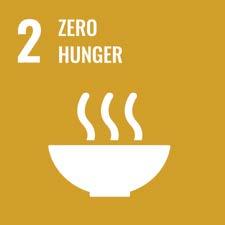
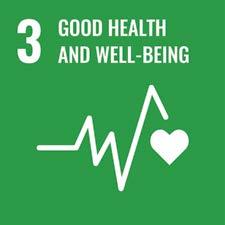
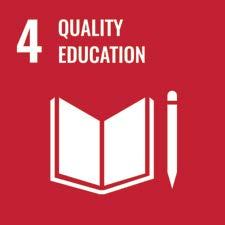

No poverty — end poverty in all its forms everywhere.
More than 700 million people still live in extreme poverty.
You can contribute to achieving this goal by donating things you don’t use.
Zero hunger — end hunger, achieve food security and improved nutrition and promote sustainable agriculture.
A third of the world’s food is wasted, yet 821 million people are undernourished.
You can contribute to achieving this goal by eliminating food waste, making more sustainable food choices, and supporting local farmers.
Good health and well-being — ensure healthy lives and promote well-being for all ages. This encompasses maternal and child health, disease prevention, and access to quality healthcare services.
Vaccinations resulted in an 80% drop in measles deaths between 2000 and 2017.
You can contribute to achieving this goal by vaccinating yourself and your family, avoiding substance abuse, donating your blood.
Quality education — ensure inclusive and equitable quality education and promote lifelong learning opportunities for all.
617 million children and adolescents lack minimum proficiency in reading and mathematics.
You can contribute to achieving this goal by mentoring and educating young people in your community, donating your used books.
Gender equality — achieve gender equality and empower all women and girls.
1 in 3 women has experienced physical and/or sexual violence.
You can contribute to achieving this goal by standing up against harassment whenever you see or become aware of it, being aware and avoiding gender stereotypes, voicing your support for equal pay and work.
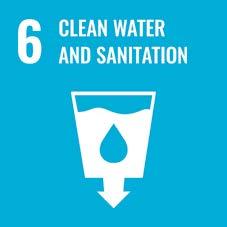

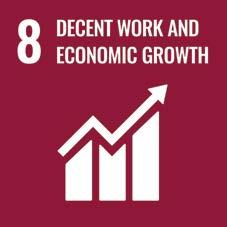

Clean water and sanitation — ensure availability and sustainable management of water and sanitation for all.
Water scarcity affects more than 40% of the world’s population.
You can contribute to achieving this goal by avoiding wasting water (for example, taking short showers, closing a tap when you don’t use it).
Affordable and clean energy — ensure access to affordable, reliable, sustainable and modern energy for all.
Three billion people still lack clean cooking fuels and technologies.
You can contribute to achieving this goal by using energy-efficient appliances and light bulbs, turning off electronics and lights when you’re not using them.
Decent work and economic growth — promote sustained, inclusive and sustainable economic growth, full and productive employment and decent work for all.
One-fifth of young people are not in education, employment, or training.
You can contribute to achieving this goal by being a conscious consumer (if something is new and cheap, it is likely to be hurting people or the planet in some way), knowing your rights at work to access justice, buying from local producers, supporting young people to help them better prepare for future jobs.
Industry innovation and infrastructure — build resilient infrastructure, promote inclusive and sustainable industrialization and foster innovation.
Roads, water, sanitation, and electricity remain scarce in many developing countries.
You can contribute to achieving this goal by creating a Wifi hotspot map to help more people access the internet, organizing or participating in a Think Tank contest.

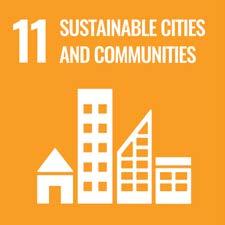
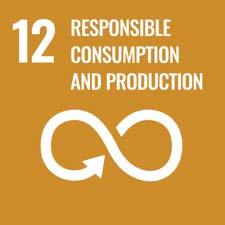
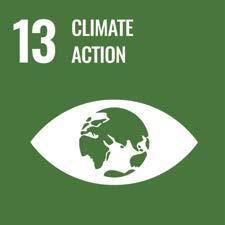
The poorest 40% of the population earn less than 25% of global income.
You can contribute to achieving this goal by raising your voice against any type of discrimination, supporting migrants and refugees in your community, favoring companies that are inclusive.
Sustainable cities and communities — make cities and human settlements inclusive, safe, resilient and sustainable.
9 out of 10 urban residents breathe polluted air.
You can contribute to achieving this goal by taking care of public spaces (organizing or participating in cleanups, watering and planting greenery, renovating spaces), commuting in a sustainable way (biking, walking, or using public transport), taking advantage of your right to elect the leaders in your local community.
By 2050, the equivalent of almost three planets could be required to sustain current lifestyles.
You can contribute to achieving this goal by buying second-hand, shopping locally, using food-sharing applications (for donating and buying leftover food), choosing reusable products, joining petitions and campaigns calling out businesses with unsustainable practices.
By 2050, the equivalent of almost three planets could be required to sustain current lifestyles.
You can contribute to achieving this goal by buying second-hand, shopping locally, using food-sharing applications (for donating and buying leftover food), choosing reusable products, joining petitions and campaigns calling out businesses with unsustainable practices.
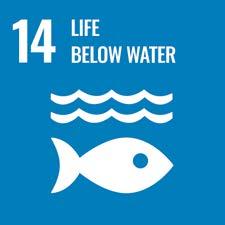
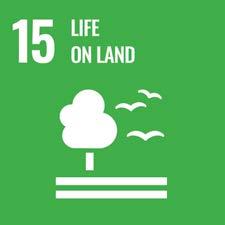
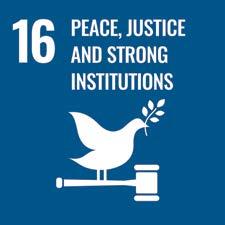
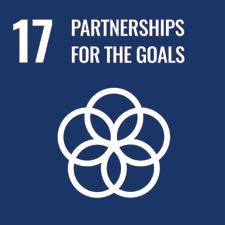
Life below water — conserve and sustainably use the oceans, seas and marine resources for sustainable development.
Over three billion people depend on marine and coastal biodiversity for their livelihoods.
You can contribute to achieving this goal by not buying bottled water, reducing waste, buying local and certified fish, organizing or participating in river and ocean cleanups.
Life on land — protect, restore and promote sustainable use of terrestrial ecosystems, sustainably manage forests, combat desertification, and halt and reverse land degradation and halt biodiversity loss.
Forests are home to more than 80% of all terrestrial species of animals, plants, and insects.
You can contribute to achieving this goal by reducing your use of paper, choosing to adopt over shopping for pets, not buying products tested on animals, composting and recycling, cleaning your local forests and parks, not using pesticides.
Peace, justice, and strong institutions — promote peaceful and inclusive societies for sustainable development, provide access to justice for all and build effective, accountable and inclusive institutions at all levels.
In 2018, the number of people fleeing war, persecution, and conflict exceeded 70 million.
You can contribute to achieving this goal by supporting refugees, taking advantage of voting, speaking up and asking your local and national authorities to engage in initiatives that don’t harm people or the planet.
Partnerships for the goals — strengthen the means of implementation and revitalize the Global Partnership for Sustainable Development.
The goal calls for collaboration among governments, businesses, and civil society to achieve the SDGs. This involves sharing knowledge, resources, and expertise.
You can contribute to achieving this goal by working or volunteering in NGOs working towards the Sustainable Development Goals, supporting export by buying Fair Trade label products from developing countries.
The content of this publication has not been approved by the United Nations and does not re-
flect the views of the United Nations or its officials or Member States
In the previous article we explored Sustainable Development Goals. As mentioned before –SDGs operate on different levels: international, national, and local. Every individual’s contribution is crucial to the achievement of the goals.
In an attempt to find ways that local people can contribute to Sustainable Development Goals –we researched some of the organizations that rely on and accept help from civil society in Thessaloniki. Some of the organizations that we found are:
S ave Your Hood – is an environmental group that organizes cleanups and educational activities promoting community spirit for achieving the goal of cleaner, greener, and healthier neighborhoods. It operates in different cities of Greece (including Thessaloniki) and Cyprus. “Volunteering is the lifeblood of Save Your Hood.” They started with 7 volunteers and 3600 liters and now they are at 46994 volunteers and 11 million liters of trash.
The goals this organization covers are 11 –sustainable cities and communities, and 13 –climate action.
by Luise Meerheim & Iryna StryhaYou can get involved by joining cleanups, or becoming a member of the community. You can find more information on their website (saveyourhood.gr).
Naomi is a German organization operating in Greece, focused on helping asylum seekers and refugees. They organize educational workshops, provide Emergency Aids (food, medicine, hygiene items, etc.) for those in need, create a safe space for women and children, organize integrational measures.
O ne of the initiatives they have is a Textile Academy, where refugees (particularly those most unprotected — women and single mothers) can get the access to a holistic educational program — training on sewing skills, career counseling, Greek language, soft skills, and environmental awareness. Naomi is empowering attendants to participate in social and economic life. Professionals get trained and prepared for a new labor market boosting the Greek textile industry, in need of skilled workers. Non-professionals learn to be able to work for their own needs and if possible generate an income by sewing for others. This project ad-
dresses the lack of access to training, counseling, fair jobs, and income for those belonging to the social groups of asylum seekers and refugees in Greece.
The goals this organization covers are 8 – decent work and economic growth, 10 – reduced inequalities, and 12 – responsible consumption and production.
You can get involved by volunteering for the organization, making donations, or buying items produced in the Textile Academy (shop.naomi. gr). You can find more information on their Facebook page (NAOMI Workshop Thessaloniki).
S olidarityNow (Blue Refugee Center) — is a Greek Non-Profit, humanitarian organization, created to respond to the needs of the most vulnerable and marginalized groups of our society, without discrimination. It aims to bring together different groups of people to address common challenges. They operate 3 Solidarity Centers for vulnerable populations; offer free services to all; empower unaccompanied minors; deliver educational and social inclusion activities; and support access to the labor market.
The goals this organization covers is mostly 10 – reduced inequalities.
You can get involved by donating, or becoming a member of the organization — they are looking for workers, volunteers. You can find more information on their website (solidaritynow.org).
A fter exploring several local initiatives, we decided to focus our photo story on Wave and Thessaloniki Pride. Through interviews and photography, we aimed to showcase their activities and impact as well as provide insights into their work.
R ead and discover how these initiatives are contributing to our local community!
If you are interested in getting involved – you can scan the QR code on the right top corner of the collage.
K eep in mind: By participating and supporting these and other organizations working towards Sustainable Development Goals — you make your own footprint in making this world a better place for all!




While Thessaloniki is known for its Byzantine heritage, it is less recognized that the city was once one of the largest Jewish metropolises in Europe. Before World War II, Jewish people made up two-thirds of the population, with 56,000 residents, while there were a total of 80,000 Jews in all of Greece.
E stimates say that after the end of World War II around 2,000 to 10,000 Jews still lived in Thes-
saloniki. The numbers are not clear, as many Jews lived in hiding or went abroad. 87% of Greek Jews were murdered in the Holocaust.
T oday, when strolling through the streets of Thessaloniki, only little remains of the once-thriving Jewish metropolis and its tragic end are still present. However, by taking a closer look some traces indicating the history can still be found.


A rriving at the Aristotle University of Thessaloniki, not much is indicating that it was once the location of the jewish cemetery of the city.
The old Jewish cemetery of Thessaloniki comprised around 300,000 graves and was one of the largest in Europe. Some of the tombstones even dated back to the year 1493.
I n the Jewish faith, it is of great importance to maintain graves as eternal resting places. Therefore, the preservation and care of cemeteries are very meaningful.

I n December 1942, the cemetery was destroyed by the German army. Tombstones were demolished and later used as building material in houses, gardens, pathways and the university. Today, the Aristotle University of Thessaloniki is placed on the grounds of the old jewish cemetery.
In 2014, the Aristotle University of Thessaloniki and the jewish community organized a memorial for the former jewish cemetery, located in the area of the University, behind the library.
 The library of Aristotle University of Thessaloniki
Monument, commemorating the jewish cemetery
Tombstone of the former jewish cemetery
Tombstone used as building material for a wall near the train station
The library of Aristotle University of Thessaloniki
Monument, commemorating the jewish cemetery
Tombstone of the former jewish cemetery
Tombstone used as building material for a wall near the train station

The former Baron de Hirsch Quarter is located near the port in the west side of the city, which became an important refuge for many jewish residents of Thessaloniki after the devastating fire of 1917.
In 1943 during the German occupation, the Baron de Hirsch Quarter was designated as one of the two ghettos in the city before the people living there were deported to Auschwitz, Bergen-Belsen and Treblinka.
In total, 45,000 Jews were deported to concentration camps by the Germans. Approximately 70 to 80 people were crammed into each wagon, and the journey lasted about six days.

The Jews who survived and returned to the city after the Second World War often found their homes occupied, even by former neighbors, and their belongings plundered. Many non-Jewish residents benefited from the displacement and extermination of the Jewish population. Until now, there has been no proper reparation.
“
It is the responsibility of all of us to make Freedom Square a place of remembrance again, so that the citizens and visitors of the city can see the place of martyrdom, remember and learn
how easily a society can be led down the path of barbarism if oblivion prevails.”
(The Central Board of Jewish Communities in Greece is the country’s EJC affiliate)

Going further on the port, in front of the Eleftheria square a monument commemorating the Holocaust is placed. Its placement serves as a reminder of the historical significance of Eleftheria Square.
O n July 11th, 1941, a day popularly known as “Black Saturday”, a total of 9,000 Jewish men aged 18 to 45 were gathered at Eleftheria Square to be registered for forced labor. Meanwhile, they were humiliated by German
soldiers, being forced to do sports exercises and being beaten, witnessed by a lot of people bystanding and watching. Ultimately, 2,000 of these men were ordered into forced labor. In an attempt to ransom the men, the jewish communities of Thessaloniki and Athens collected funds, including selling the jewish cemetery in Thessaloniki to the city administration. Today, the square is functioning as a parking lot, even though it was originally supposed to become a place of memorial.
Μonument in front of Eleftheria square
No, that is not the city where I first saw the light of day / No, those are not the people I knew in my childhood /. No, that is not the sun that used to shine / That is also not the sky that enchanted me
A nd I believe I am living on another planet / Where with every step I feel as if I’m seeing / Shadows parading in infinite number / And their sight moves me terribly
A mong them, I believe I see familiar figures
/ From the elders, my brothers, countless friends / Among them are a thousand innocent children / Pure lights that the beasts did not hesitate to extinguish
( ‘Saloniki’ by Shlomo Reubens, August 1966, in Ladino)
When dealing with years of politically manufactured problems lead to unexpected cinematic spectacle of hilarity, enter “Sejmflix”.
On the 15th of October 2023 Poles voted and chose the opposition coalition which ended the 8-year rule of nationalist conservative Christian party PIS (Law and Justice). Many have celebrated this happening and sighed with relief that PIS lost. While the Opposition is jubilating and PIS is doing everything not to hand over their power, Poles are enjoying Polish politics more than ever. Even subscribing to the Sejm RP (Sejm of the Republic of Poland YouTube channel), they watch the parliament live, funny videos and compilations of the best moments. But why do they do this and how did this happen?
Introduction to the 8 years worth of issues…
L et’s start with some information in a nutshell. The PIS party, in power since 2015, lost the 2023 Polish parliamentary election and failed to uphold the majority but refused to concede.
 by Ken Maciej Starczewski
by Ken Maciej Starczewski
President Andrzej Duda ordered previous Prime Minister Mateusz Morawiecki to create a transitional government, hoping to maintain PIS control. However, the plan failed, the Opposition Coalition took charge and chose Donald Tusk as their leader. Now that the new government is in power, more scandals are coming to light. The new parliament established investigative committees for: Visa fraud, Pegasus eavesdropping by PIS, and a corruption affair named “Land Affair” (which resulted recently in the arrest of two of the involved politicians: Mariusz Kamiński and Maciej Wąsik).
“Now that the new government is in power, more scandals are coming to light. The new parliament established investigative committees for: Visa fraud, Pegasus eavesdropping by PIS, and a corruption affair named “Land Affair”
There are many serious issues that have affected the Poles and even the European Union despise PIS’s 2015-2023 government. PIS turned the Polish television network TVP (pol. Telewizja Polska), the largest and oldest one in Poland, into their propaganda machine within their political reign. It present-
© KancelariaSejmu Donald Tusk during his exposeed PIS as the only viable option for Poles and others as irredeemable and evil. This included the LGBTQ+ community, political opposition, the judges, EU, Germany, competitors in public TV broadcasting, news journalists and similar groups.
A t the same time, PIS tried to get rid of Polish tv station TVN in 2021, because it was critical of PIS. Even though they had to stop due to critiques, particularly from the US, this incident illustrates how PiS government sought to utilize censorship to silence opposing voices.
B esides that, PIS had a big nepotism issue, where the PIS politicians and their family members would end up in many important institutions. As they promoted many judges and prosecutors based on their politics and not on skill/ merit. Poland also ended up not receiving many funds from the EU as well.
Alright, but how did it happen that the Sejm RP YouTube channel has exploded in viewership and subscriptions? Polish people have become more interested in Polish and EU politics again. This is evident in the significant increase in voter turnout, which reached a record high of 74.38% in the last election. With the change in power, many are hopeful that the country will recover from the democracy crisis of recent years. Citizens are glad that PiS is finally being confronted with their mistakes and their populist policies are no longer going unchallenged. Additionally, since the last elections people are enjoying the many crazy situations happening, many of which were broadcasted live on Sejm RP. I’ve observed people on social media proclaiming it as the best cabaret that you can currently watch. Poles, known for enjoying cabarets that com-
ment on current socio-political issues, seem to particularly relish this one. It became such a phenomenon that several cinemas in Warsaw started screening Polish Parliament sessions multiple times. Hundreds of Warsaw citizens came to cinemas to watch the screening though not entirely for the purpose of celebration of the new pro EU-parliament. They did this mostly, because it was entertaining to them and unlike anything they have seen in a long time. After all, many of them brought colas and popcorn to the cinema. What is even more interesting is that the whole phenomenon of watching Polish parliamentary sessions from Sejm RP official channel even got dubbed as “sejmflix”.
Marshal of the Sejm: Szymon Hołownia
The fact that Polish politics got very hilarious to Poles is also thanks to our new Marshal of the Sejm, Szymon Hołownia. The new representative of the Sejm quickly became respected not only for his eloquence and mannerism, but due to his quips, jokes and quick-wittedness in dealing with political opponents.
Szymon Hołownia has been a politically active politician for a relatively short time, so him becoming the new Marshal is quite a surprise and a contrast with his past. Before he engaged in politics, Hołownia used to be a journalist and a catholic columnist as well as co-host of a very popular program Mam Talent (polish equivalent of Got Talent). In 2020 he started in presidential elections and received 13.9 % votes. After the elections he formed a political party, Poland 2050. He approaches the political arena in a completely different manner, managing to inject a dose of humour into the typically rough parliamentary debates with his refreshing attitude. In doing so, he confronts the PiS,
who are not accustomed to facing such witty comebacks. For instance, when a PiS representative attempted to belittle him in a very crude manner, Hołownia countered, saying, “I really appreciate your comments and remarks, but from my perspective they are becoming a bit monothematic. I encourage you to be more original. Challenge your intellect. Insulting is also a skill one must possess.”
The enormous interest in Polish parliamentary discussions also led to a massive increase in viewership and subscriptions for Sejm’s channel. The number of subscribers rose rapidly from 45.900 in November 2023 to 700.000 in

“It became such a phenomenon that several cinemas in Warsaw started screening Polish Parliament sessions multiple times. Hundreds of Warsaw citizens came to cinemas to watch the screening though not entirely for the purpose of celebration of the new pro EU-parliament. ”
January 2024. Simultaneously, the views also increased immensely from around 11 million at the end of October to around 44 million at the beginning of January. In comparison, other YouTube Parliamentary channels do not get as much traction. In fact, it’s the most subscribed Parliament channel in whole Western Europe. In comparison, the German Parliament YouTube channel, Deutscher Bundestag, only has around 130.000 subscribers despite Germany having a population twice the size of Poland’s. The Greek Parliament channel, Hellenic Parliament TV, has an even smaller number of subscribers, amounting to around 64.900 and even the Italian Parliament channel just counts around 60.500 subscribers.
What’s next?
Poles are relieved that PIS lost the elections and that the new government will be in power with hopes that it can fix the many problems created by the previous regime. At the same time, they anticipate new live streams and sessions with many important Polish political figures to watch and laugh. As Hołownia would say: “Ladies and gentlemen, stock up on popcorn... because I suspect there will be a lot of action.”

Does a utopian city with no government and no currency, where all cultures meet, really exist?
L ocated in India, in the state of Tamil Nadu, the Auroville project was launched in 1964 by a French woman living in Pondicherry, Mirra Alfassa, also known as The Mother.
by Anaïs Manicacci
A uroville was the brainchild of her late husband, Sri Aurobindo , and refers to his philosophy, a so-called integral yoga (both physical and philosophical, seeking harmony in all aspects of life).

The Mother wanted to carry out this experiment for her husband, a universal city “where men and women would learn to live in peace, in perfect harmony, beyond all beliefs, political opinions and nationalities” 1 Their aim was to create a new humanity. She died in 1973, but Auroville continued to develop after her death because of the involvement of the inhabitants. The project has also benefited from the help of UNESCO and the Indian government.
The “Town the Earth Needs” was officially inaugurated on 28 February 1968 . In 1973, the town had 1,000 inhabitants, of different nationalities. The goal of the project would be to reach 50,000 habitants. After stagnating for a few years, this figure seems to be rising again, with the town now boasting 3 300 inhabitants. In 2022, 49 new people joined the city.
1 Fricot, Pauline. « Inde : 50 ans après sa fondation, qu’est devenue la cité utopique d’Auroville ? » Geo.fr, 8 juin 2021. https://www.geo.fr/voyage/inde-50-ans-apres-sa-fondationquest-devenue-la-cite-utopique-dauroville-204209.

Auroville took the shape of a galaxy. The architect, Roger Anger, drew up the first plans. He divided the spiral into four zones: residential, cultural, industrial and international. Within these zones, “communities” were created: Aspiration (the largest, with 75 members), Fraternity (mainly Indian), Certainty (bringing together Europeans) and Dana (mainly French). It was also behind the creation of the “sculpture houses”. Auroville covers a total area of 2,000 hectares.
“Here there is no exploitation of man by man”
The town centre, the Matrimandir, is dedicated to meditation. Also known as the place of The Mother, it represents the goal, which can only be achieved if everyone follows a path that is more spiritual than religious. This place, built by the pioneers in 1971, was a way of materialising their union. It’s a place for individual silence concentration and it’s surrounded by 12 gardens that represent the twelve qualities and necessities to cultivate both spiritual and material well being. The town was then built around

it. It enabled the first Aurovillians to forge connections with the local Indians. Together, they dug wells, built houses and, above all, planted trees to protect them from the sun.
In this city, racism does not exist, everyone is considered as equal. “Here there is no exploitation of man by man” (Auroville resident, 1973, INA archives). Religion, politics, pollution and money don’t exist. The first thing they have to think about is “What do I have to do to survive here?”
To live here, the habitants have to give up their possessions. Those who are allowed to come here are people of goodwill who aspire to a higher and truer life. On the day of its creation, 28 February 1968, handfuls of soil from 124 countries were mixed in a marble urn to symbolise this unity. This urn would be the first building constructed. On that inauguration day, the Mother read the Auroville Charter.
1. Auroville belongs to no one in particular. Auroville belongs to all humanity as a whole. But to stay in Auroville, one must be a willing servant of Divine Consciousness.
2. Auroville will be the place of perpetual education, of constant progress, and of a youth that never grows old.
“On the day of its creation, 28 February 1968, handfuls of soil from 124 countries were mixed in a marble urn to symbolise this unity. ”
3. Auroville will be the bridge between the past and the future. Taking advantage of all external and internal discoveries, it wants to boldly launch itself towards future achievements.
4. Auroville will be the place for material and spiritual research to give a living body to a concrete human unity”.
“Children are at the centre of the city’s concerns ”
Today, 50% of Aurovillians come from the surrounding Indian villages and the rest come from 58 different countries, with French and Germans making up the largest numbers.
There is only one supermarket, that is selling only products considered as necessary, without exchanging money. Vegetarianism and veganism are popular in Auroville, but not mandatory.
To live more simply, they rely mainly on solar energy. They also use a solar oven, which only exists in 3 different places: France, Texas and

Auroville. The heat reflected off the 1,100 mirrors creates an oven that cooks the food in the large central canteen, the “Solar Kitchen”. Between 1,500 and 2,000 meals are made every day and sent to schools or other distribution points in addition to the collective canteen.
C oncerning the housing situation, one house is attributed to one person for five years, then if that person is leaving, even temporarily, the house will get a new owner. Removing the right of ownership of a home allows the habitants to return to the main purpose of housing: to be a place of welcome and hospitality. The houses are built using recycled materials from old buildings and clay soil.

They use algae to treat the waste water, but the algae need unstable water. They have managed to find a system for balancing the water that could be used in Pondicherry, the neighbouring town.
The water there is free, and it has been purified and dynamised - in other words, according to many laboratory research, it has been modified so that it is closer to the water that could be
found before pumping and the switch to today’s pipes. A number of taps have been installed in villages close to this new water, which is also free. Auroville is an ecological town, but the inhabitants are aiming to reduce the amount of land they use to reach a much higher ecological level. They hope to achieve a 55% natural surface area.
The town is not run by one person in particular; they collectively live in self-management. Every form of society has been tried, but none of them is suitable for everyone, so they are still looking for the best way to run the town. The main thing is that the community must have a collective spirit.
“It is possible for tourists to become Aurovillians, ”
B ut this vision of Auroville is very controversial, because from the outside, it is seen as a closed town, which accepts only certain workers and lives outside of the society. Though, not all the Indians living around Auroville see it that way, and some have even been influenced by this way of life.
Further information: Géo, Inde : 50 ans après sa fondation, qu’est devenue la cité utopique d’Auroville ?
A currency, yes, but not always
A urovillians earn maintenance given to them by Auroville, which enables them to realise their own ideal. They have the same goal, but not the same path to get there. A maintenance allowance of 8, 486 rupees (100 €) is given to de -
serving Aurovillians who take part in community work. Many habitants are still in contact with the outside society to get more incomes , but earning money should never be a first motivation in life.
They have no proper money currency, but they produce incense and pottery for example to be sold outside. Work is seen as a source of fulfilment. They work voluntarily in something they enjoy. Each local is dedicated to making the experience a success. In exchange, accommodation, food, medical care and education are provided free of charge.
What’s more, the town retains a large amount of business, which is important to them because it enables them to live, but on the other hand it shows that they still need outside help. But in recent years, this model has been called into question by some residents who feel that the soul of Auroville has disappeared.
Further information: Arte: Habiter le monde
Aurevillian children at the heart of our concerns
The future depends on education. Children are at the centre of the city’s concerns because they are the new generation of Aurovillians.
Teenagers call this system of life “free education”, which allows them to live at their own pace. They can miss as many courses as they like, but they have to take responsibility for their choices afterwards. Diplomas and grades don’t exist, they just have to prove to themselves that they can work by, and for themselves.
M any children from neighbouring villages come to Auroville schools. The local people are not against this, because they are educated in a different way and learn things that they wouldn’t learn in an Indian school.

These schools used to use the ‘rote’ system, but now it’s more of an ‘alternative’ education. 10 Aurovillian schools are experimenting with different educational methods for around 600 children. They work on the basic subjects of maths, reading and science, and learn three languages in addition to English: French, Tamil and Sanskrit. It is also possible to choose to learn other languages such as Japanese, Italian or Korean. The teaching programme focuses more on the students and their development than on the subjects.
Teenagers can choose where they want to study afterwards, in Pondicherry or in their parents’ country of origin. For example, in one of the Auroville schools for teenagers from the age of 13, they can come until they are 18 and continue afterwards if they wish. They believe that every Aurovillian continues to be a teenager throughout his or her life, searching for him-
self or herself. The school is a place where it is always possible to learn.

M any people come to visit Auroville, and the Indians in the surrounding area take advantage of the opportunity to open shops. Habitants of Auroville feels that it is losing this feeling of creating a new humanity in their world. To enter Auroville, tourists need an Indian tourist visa, which serves as an entry ticket. They must also fill in a form and find out about the culture and dress codes to be respected.
B efore visiting Auroville, tourists have to watch a documentary on the construction of Auroville. It’s possible to visit the Matrimandir, but in complete silence, as it is a place of meditation. If they want to meditate, they have to reserve their place because they are not Aurovillians.
I t is possible for tourists to become Aurovillians, but it is very complicated. They are considered “new arrivals” for a probationary period. They must then do voluntary work for the community as they see fit. They must also respect certain community rules : no alcohol,

drugs, tobacco or cars. Their political convictions or any religious symbols must not be displayed, or they must renounce them. Finally, it is forbidden to make noise after 10pm, as some elderly Aurovillians go to bed early.
These visitors pay between €8 and €60 a night for a room. This money is donated to the Auroville Foundation or used to pay utilities.
Further information: Géo, Inde : comment devenir un habitant de la cité utopique d’Auroville ?
Well-being comes first. Aurovillians are constantly torn between the ideal and reality
These people are trying to live in the world they want to change. This utopian city that seems unattainable can be achieved, or at least it can be approached, because it is becoming more and more concrete. And as the Aurovillians say, “the beauty of the adventure is in each step and we don’t know what the next one will be”.

The challenge for global dominance between the traditional Western Axis and the emerging world’s East has started a long time ago. The rise of alternative powers in the world in recent decades has been notorious, mostly in the case of China, but the entrance of Russian army in Ukraine in 2022 and the collective NATO response has become the point of inflection of this process.
First of all, it is necessary to clarify what is understood as a multipolar world and the two different conceptions of this term. The multipolar world concept can describe a shift from the traditional state-centric global axis to one where various actors like transnational companies, NGOs, and terrorist groups overshadow the state. However, it can also refer to the power distribution exclusively among states, explaining the new world order with multiple dominant poles. By using this conception, this article will analyze the world’s shift from the American unipolar dominance to the current context with a challenging Eastern pole led by China and other rising economies and the position of Europe in the new world order.
In this new rising Eastern pole can be identified an axis consisting of China as the new global economic leader, Russia as a military power and Iran as the regional power in the Middle East can be identified. In parallel, BRICS structure has developed with China and Russia as the main leaders of the organization alongside India (a global rising power), Brazil (the big power in South America) and South Africa. The success of Chinese diplomacy reaching a historic agreement to normalize Saudi-Iranian relations in March 2023 was the first step to their incorporation to the BRICS. Among them, the United Arab Emirates, Ethiopia and Egypt joined the organization, reuniting some of the biggest powers in Africa and the Middle East.
The unfolding of these events beyond Western control is proof of this global multipolar shift. For the moment, the USA and their Anglo-Saxon allies (mostly those in the Five Eyes like the UK, Australia, Canada and New Zealand) are in a weaker but still preeminent position in the global context. On the other hand, the slowdown of the European economy, the lack of sovereignty and autonomy in the decision-making process and the dependence on the USA is becoming a threat to the position of Western Powers in the current world.
The decreasing power of the European Union can be explained also by its internal problems and challenges. The clearest proof has been the struggles to reach consensus in both the 2015 refugees crisis and the COVID funds, showing a warning lack of cohesion. The loss of a controversial but powerful member like the United Kingdom has also affected the economy of the organization, whose weakness is one of the reasons for the rise of the extreme right wing in the continent. In fact, the impossibility to make governments like the Hungarian or Polish ones to respect the Human Right laws shows a lack of authority of the Union itself.
“Europe should accept their new role in the new world order and reconsider a neutral position that allows it to negotiate as well with the USA and the new Eastern rising powers. ”
Although it has been hidden for decades, the general rise of the extreme right movement can be explained by the fall of socialism in the 90’s and the deterioration of the quality of life in Western societies after the 2008 economic crisis. The disappearance of the strong left-handed ideology in most of these nations leads to a lack of alternatives for the population seeking change from the country’s traditional political system. The current spectrum is generally situated from the centrist social-democratic parties to the traditional conservatives and rising or consolidated extreme-right ones. In fact, the few recent left alternatives like Syriza (Greece) or Podemos (Spain) have already disappeared
or failed to give an alternative to the traditional capitalist system, by being now part of it.
The extreme-right alternatives, on the other hand, have entered each European Union countries’ Parliament during the last decade. Apart from the Eastern European countries previously mentioned, in the Western powers Giorgia Meloni has become Italian Prime Minister, Marine Le Pen was really close to win the Presidentials in France and the AfD party could become second force in Germany. Even though change is urgently needed, the prospect of it being led by extreme right parties seems perilous and uncertain for the future.
I n the international sphere, the European Union is facing a lack of sovereignty in the decision-making process and an increased irrelevancy in the new world order. This is exemplified by the actions made regarding the Russian-Ukraine situation.The sanctions that followed the condemnation of the Russian military’s actions appear like self-sabotage. Until now, they are being mostly prejudicial to dependent European economies in fields such as gas or energy and do not prevent the Russian economy from growing. The European Union should navigate in between the logical condemnation of Russian actions in Ukraine to a point where the well-being of the European population is not at risk. The provoked explosions of the Nord Stream 2 natural gas pipeline from Russia to Germany, along with the absence of any response, and the allocation of millions of public money and weapons to Ukraine without consulting the populations of the countries involved, are puzzling in a conflict where the EU is one of the biggest affected parties.
A fter implementing various measures against Russia, it appears that they may not lose the war. Consequently, perhaps it is time for the EU to negotiate the future of Eastern Europe and consider phasing out ineffective sanctions.
For this reason, Europe should accept their new role in the new world order and reconsider a neutral position that allows it to negotiate as well with the USA and the new Eastern rising powers. The EU is still leading fields as the response towards the climatic change and the ecological transition, so it could be the moment to lead the global diplomacy and become the balance between the two world’s big poles. In this rising tension scenario that we are already immersed in, the EU can benefit from this neutral non-aligned position. In the medium-long term, the EU can consider one of its old ambitions: the creation of an European army. To achieve autonomy in decision-making, distancing from NATO and reducing reliance on the USA is essential, with the establishment of an independent military being the most effective approach.
D espite being far away from what’s expected from an EU that champions Human Rights, the response towards the genocide in Gaza has shown slight improvement in independence from the American stance. Similarly, countries like France, Italy, and Spain have notably declined to join the Prosperity Guardian Operation against the Houthis in the Red Sea. Several countries, including Norway, Ireland, and Spain, also opposed the suspension of funding for UNRWA (the UN agency for Palestinian refugees in the Middle East), but their decision was largely influenced by public opinion within their societies. This highlights once more the lack of cohe-
sion within the EU, even in response to a severe humanitarian crisis.
The erosion of these last two years of unconditional support of Ukraine and the historical background of the Palestinian conflict were reasons enough to moderate the discourse and support to Israel in this case. The EU should definitely keep and improve this sovereign way of action and decision making in order to regain an independent position in the new world order.
In summary, the era of a unipolar world dominated by the West no longer exists. Therefore, it is more appropriate to discuss a multipolar axis.Throughout history, every shift in power dynamics has been accompanied by a rise in tension or a war between the current reigning power and the outsider nation (the Thucydides Trap). In fact, this tension started to be visible some years ago, first with the US-China sanctions and, more recently, with the war in Ukraine and the thousandth escalation of violence in the Middle East. The European Union is facing several challenges, with the struggle of the democracies throughout the continent, the lack of cohesion and union inside the organization and a decreasing leadership in the new world order. This loss of power in the worldwide dynamic, sometimes even against their own interests, is due to the excessive dependance on the USA and a lack of sovereignty and autonomy on the decision-making process. The solution could be taking distance from both poles and keeping a neutral stance that allows the EU to make agreements with both sides, to mitigate the predicted escalation of tension in the coming years and maintain balance and peace.
In our journey to comprehend our multicultural society, diversity emerges as a cornerstone in fostering tolerance and awareness. Through shared experiences and open dialogues, we uncover the profound lessons that personal interactions impart, teaching us to cherish and respect our differences. By embracing diversity and acknowledging the intrinsic value of our distinctions, we lay the foundation for a more empathetic and inclusive society, enriched by our varied perspectives.
Faced by People with Disabilities:
R esearch and reports from esteemed organizations such as the World Health Organization and the European Commission shed light on the pervasive discrimination encountered by people with disabilities across various facets of life. In the realm of employment, prejudices and misconceptions often hinder opportunities for individuals with disabilities, leading to high rates of unemployment, particularly in developing countries. A survey by the United Nations Labour Organization in 2019 revealed that approximately 80% of people with disabilities in developing nations remain unemployed. Moreover, barriers extend beyond the realm of employment, encompassing challenges in accessing education, healthcare, and social participation, compounded by inequalities in public infrastructure and transportation.
by Madlen Batsiou“A survey by the United Nations Labour Organization in 2019 revealed that approximately 80% of people with disabilities in developing nations remain unemployed. ”
The obstacles experienced by individuals with disabilities in different spheres of life highlight the necessity for organizations committed to promoting inclusiveness, enabling full participation for all. APS stands as one such organization. APS (APSCDFA Associação Promoção Sócio Cultural Desportivo De Fornos De Algodres) is based in Algodres, Portugal, and has been serving the community since 1987. They provide support and empowerment to children, young adults, the elderly, and people with disabilities.Through collaborations with external institutions, APS promotes community engagement and inclusivity. During last year, I had the chance to be a volunteer within this organization.
My involvement with APS as a physiotherapist has allowed me to make a meaningful impact in
the lives of others. Through my volunteer work, I have witnessed the positive effects of APS’s programs and have been inspired to continue helping those in need and advocating for social causes.
My volunteer work with APS shed light on the urgent need for support and awareness for individuals with disabilities. I came to understand the crucial role of inclusivity and accessibility in fostering a compassionate and supportive society.
“This experience has not only contributed to my personal growth but has also reinforced my dedication to advocating for a more inclusive world. ”
While volunteering, I interacted with individuals facing a variety of challenges due to their disabilities. Despite these obstacles, I was struck by their resilience and determination to embrace life to the fullest.
From providing care and support to supervising daily activities and participating in educational workshops and community events, I strived to create a nurturing and inclusive environment.
This experience has not only contributed to my personal growth but has also reinforced my dedication to advocating for a more inclusive world. Volunteering with APS empowered me to recognize the importance of disability activism in driving positive change, as it amplifies the voices of individuals with disabilities, promotes their rights, and fosters a more inclusive society.

D isability activism plays a crucial role in advancing equality, justice, and inclusion for people with disabilities. Activists raise awareness, advocate for policy reforms, and work towards dismantling barriers that hinder their full participation in society.
To get involved in disability activism, individuals can join local organizations and advocacy groups, participate in events and awareness campaigns, sign petitions and resolutions, educate themselves and others about disabilities, support initiatives promoting accessibility, and volunteer their time and expertise.
In conclusion, the journey outlined here reflects the importance of fostering inclusivity and support for individuals with disabilities within our communities. Through organizations like APS and personal engagement in activism, we can work towards creating a more equitable and accessible society where everyone can thrive. By acknowledging and addressing the challenges faced by people with disabilities, we contribute to building a world that values diversity, compassion, and inclusion.
“ We walk through our village in the evening when we suddenly hear music playing. Because we want to know where it’s coming from, we get closer. We’re perceiving male voices. Maybe 15 people, sitting together in an allotment garden. The closer we get, the more we understand the lyrics of the song they are listening to: ‘In Buchenwald, in Buchenwald, we kill all the Jews.’ Ev-
by Luise Meerheimeryone is singing along. Later, we witness them going home. They laugh and shout ‘Sieg Heil.’
~ Johanna Behring*, 19 years, living in Hartmannsdorf close to Chemnitz
I grew up in a village near Chemnitz. Chemnitz, that’s a city of 250,000 inhabitants in eastern Germany, the state of Saxony.

There isn’t much to see there. What used to be an industrial metropolis is now a mid-sized city without any special sights, still bearing the charm of GDR-era. The only place of interest is a giant stone-head of Marx, which adorns a square in the city center.
B ehind it, in large letters and various languages, it is written:
‘ Working men of all countries, unite!’ Karl-MarxStadt. That’s what Chemnitz used to be called.
I feel at home there. Somehow.
I know people there who love me, whom I love.
I like the aesthetics of the 1960s prefab buildings that still shape the urban architecture.
S omehow. And yet, the thought of Chemnitz always comes with a bittersweet feeling inside of me.
I’m sure of few things in my life. But when I finally finished school this year, I was sure of one thing: I need a break from Chemnitz. I need distance. I need to get away.
R ight-wing extremism has been a problem in this region not only recently. Already in the 1990s, after the fall of the Berlin Wall, Saxony became a stronghold of neo-Nazism. From these so-called Baseball Bat Years, there are two stories that left me shocked. They both took place near my home. That’s why I want to share them:
It is an evening in September of the year 1991, when a group of right-wing extremists attacks Vietnamese cigarette sellers in the Saxon town of Hoyerswerda. They flee to their dormitory, but the Nazis follow and pelt the accommodations with stones. In the following days, an increasing-
ly violent mob of up to 500 people gathers in front of the contract workers’ apartments. For civil society, the attacks become an event. Many standby as spectators. After days of siege, the police decide to evacuate the people. Even during the evacuation, Nazis don’t stop attacking the contract workers. As they drive away in buses, the Nazis celebrate their triumph and declare Hoyerswerda the first ‘foreigner-free city in Germany.’
In October 1, 1999, another incident takes place as punk concerts are held in the youth center of the Saxon town of Hohenstein-Ernstthal. Several cars with Nazis patrol outside the venue. When the concert is over and the punks leave the building, the Nazis seize their opportunity. They get out of their cars and beat up the concertgoers.
“We will not leave these people the space, we must stand up to them, show them that their hate meets resistance. Every time, everywhere. Again, and again.”
The punks retaliate, but the right-wing extremists are reinforced by 150 to 200 members of the notorious Chemnitz thug group ‘HooNaRa’ (Hooligans-Nazis-Racists). Fearing for their safety, the concertgoers hide themselves in the youth center, barricading doors and windows. Patrick Thürmer and his friend are also there. Because they don’t want to stay inside any longer, they flee over the roof and head home. They think they are safe when a car stops next to them. The door opens, three men jump out and start beating Patrick’s friend mercilessly. He falls to the ground and pretends to be dead to avoid further blows. The three men now focus on Patrick. They beat him until he lies motionless on the ground. They throw his lifeless body into a nearby stream, where it is found by passersby
the next day. He is declared dead in the hospital. The prosecutor’s office needs 17 lines to list all the injuries he succumbs to.
B oth stories brutally illustrate the latent propensity for violence that people with migrant backgrounds and left-wing people were particularly exposed to in East Germany at the end of the 20th century.
When these things happened, I wasn’t even born yet. I can only gather from others’ reports how omnipresent fascists must have been in those years.
The year I was born was 2004. While life was given to me in that year, it was taken from other people in the most brutal way. Already in the late 1990s, the core trio of the right-wing terrorist group NSU (National Socialist Underground) was formed with Beate Zschäpe, Uwe Böhnhardt, and Uwe Mundlos as its main members. While they initially lived in Thuringia, they went underground in 1998 after a police raid and operated from the cities of Chemnitz and Zwickau. They armed themselves, committed bank robberies, and planned gruesome murders of people with migrant backgrounds throughout Germany.
I t’s February 24, 2004, when Mehmet Turgut becomes a victim of the NSU in Rostock. The 25-year-old is helping in his father’s kebab shop when two men, presumably Mundlos and Böhnhardt, enter the store and shoot him three times at close range. The bullets penetrate his neck, his back, and his head. He dies instantly.
Turgut was neither the first nor the last victim of the NSU. In total, the trio murdered 11 completely innocent people across Germany until their exposure in 2011.
When the NSU complex was uncovered, I was 7 years old. At that time, I didn’t notice anything about it. But it must have been around the same time that I had my first experiences with Nazis. Back then, one of my closest family members became a target for neo-Nazis himself. I still remember bold-headed men menacingly loitering in front of our entrance, waiting for him to come out. I still remember how we locked the door because of that. I still remember how the Nazis hung a poster at the playground in my village, threatening him with death: ‘Meerheim, you rat tick, you will be drowned.’
From that moment on, I knew that Nazis are a real danger, that they are not to be trifled with, that they do not even stop at my safe space, my family’s house. It took a few more years until I actually developed an understanding of politics and began to really engage with this problem. 2018 was the year I attended an anti-fascist demonstration for the first time. There was a compelling reason for that: At that time, Chemnitz became a showplace of tragic scenes that caused a stir not only in Germany but also internationally. Following the killing of a man called Daniel H. at the Chemnitz city festival by an asylum seeker, the city saw weeks of demonstrations and riots. The right-wing and neo-Nazi scene instrumentalized the death of the 35-year-old for ideological purposes. Demo participants shouted slogans like ‘Foreigners out’ and ‘Germany for Germans.’ Nazi salutes were made. Some Nazis began to roam the city in groups, looking for people who “looked foreign” to attack them.
I t’s one of those Friday evenings in September when Farhad Keshavarzi is sitting innocently with friends at the Castle Pond in Chemnitz. Suddenly, 20 to 30 black-clad men armed with
quartz gloves and electric shockers surround him. Among them are members of the right-wing terrorist cell ‘Revolution Chemnitz,’ who were later convicted by the Federal Constitutional Court. The police arrive before they can attack him. The masked men run away and throw bottles at Keshavarzi as they flee. One hits him on the back of his head. He states, “I’m afraid to go out, for example, I’m afraid at dusk.”
With the beginning of my own politicization, the confrontations with Nazis have of course not become fewer but more. I can list places I no longer go to because I know I risk being insulted or attacked there. And of course, I’m not the only one. I know incredibly many people who, because of their political beliefs, their background, their sexuality, or other factors, always have to be mindful of where they go and which places they should avoid for their own safety.
One of my best friends told me last summer:
“
I was bathing in the local quarry with a friend. Even in the water, we saw these men on the other shore and noticed them talking about us. When we came out of the water, the group of men approached. They eyed us suspiciously and whispered. I let my hair down to dry. They saw my dreadlocks. Then I heard them say, ‘Wow, she has dreads, she must be a leftist.’ One shouted, ‘You damn tick, I’ll rip the dreads off your skull.’ We quickly went home. Luckily, nothing else happened. But I wouldn’t go bathing in the quarry anymore.”
But sometimes even that’s not enough for the Nazis. Then they come to the places where we should feel safe. They besiege our homes. That’s what happened to another person in my circle of acquaintances:
“ When we moved to the village, people created an Instagram account named ‘adolfhitler88’. They uploaded photos of me and wrote underneath that “this tick should disappear”. The same people came to my house two years later because they saw a rainbow flag hanging in the window. They knocked on my window and shouted through a megaphone that the rainbow flag should be replaced with the Flag of the German Empire.”
~ Anouk*, 18 years, now living in Chemnitz
S ometimes it can be exhausting. Sometimes it feels like there’s nothing you can do against them, as if they are much more, much stronger anyway. But sometimes there is also hope. When I talk to my friends, people around me, we always agree on one thing: We will not leave these people the space, we must stand up to them, show them that their hate meets resistance. Every time, everywhere. Again, and again.
I want to close with the words of Jakob Springfeld, who describes this dilemma of hatred and hope for his hometown Zwickau in his book ‘Jung. Ostdeutsch. Gegen Nazis.’ He speaks from my heart, just by substituting ‘Zwickau’ with ‘Chemnitz,’ his message aligns with mine:
“
I’ll come back, in a few years. Absolutely. I say it out loud, maybe also because I want it to become a commitment for me. Because I know that I will continue to struggle with this conflict within me, with my love and my hatred for this city. Living in Zwickau means living among Nazis. But living in Zwickau also means living among friends, among activists who never give up. Zwickau is my hell; Zwickau is my home.”
*Name changed to protect anonymity
“Art is not a mirror held up to reality but a hammer with which to shape it”
This quote of the renowned poet Bertoldt Brecht underlines the transformative power of art and implies that art and politics have a profound connection, which becomes especially evident in diverse expressions of political art. This article will explore the evolution of political art in the 21st century by the rise of street art, digital art and new mediums for political expression.
B efore delving deeper into the development of political art, the term itself needs to be explained. Political art involves the creation of artworks that address and reflect upon political themes and scenes. While not a new movement, its roots trace back to the 18th century, notably during the French Revolution when artists expressed their political views through their work. Political art serves as a platform for artists to share their perspectives, provoke thoughts, and catalyze change.


Social-Political Expression:
Protest:
Art serves as a powerful tool for dissent, allowing artists to express their disapproval of political actions and decisions, and mobilize public opinion for change.
Example: George Floyd Mural Street artists designed the wall of the building where George Floyd was brutally murdered by a police officer. Their mural serves as a protest against systemic racism and police brutality, demonstrating solidarity with the victims.
Artists use their creative talents to highlight specific social and political issues, aiming to raise awareness and promote empathy among viewers.
Example: Flying Balloon Girl Westbank - Bansky
Banksy’s well-known artwork on the Israeli West Bank Barrier was made in 2005 and symbolizes the wish of freedom from oppression caused by the barrier cutting through Palestinian territory, leading to land confiscation and social isolation.
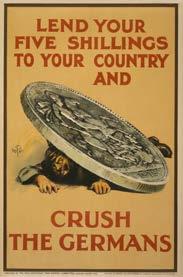
Satire:
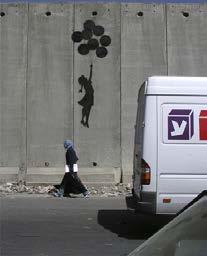
Propaganda:
Some artists create art with the intention of promoting or opposing specific political ideologies or government policies.
Example: Propaganda Poster - War Saving Committee
In World War I, the British Parliamentary War Savings Committee used propaganda posters to link savings to military success and encourage war bond purchases.
Artists employ humor and irony to critique political events and figures, offering a satirical commentary on contemporary politics and societal norms.
Example: Less guns more glitter - bandstand
The poster utilizes satire by juxtaposing Trump’s support for gun rights with the suggestion of embracing glitter and flamboyance, traditionally associated with liberal values, to critique his policies and macho image, while advocating for a shift towards less aggression and more inclusive discourse.
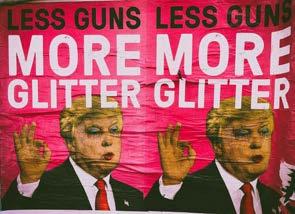
This evolution highlights how art and politics have adapted to a globalized world, where ideas can spread quickly and reach people in new ways.
Street Art and Graffiti:
Street art has emerged as a prominent form of political expression, utilizing public spaces to convey messages that reach a wide audience. Artists gain international attention through their outdoor creations, provoking thought and engaging passersby in dialogue.
After the invention of the social media platforms like Instagram, Facebook, Twitter, TikTok etc. everyone get in contact with politics. Artists can reach super much attention from the internet and the sharing of information goes fast. The most popular
form for political expression here has become Memes and digital Illustration. Allowing for rapid responses to current events and the dissemination of political messages with humour and satire.
The interconnectedness of the contemporary world has facilitated the exchange of political art across borders and cultures, leading to the emerge of diverse perspectives and voices. Artists draw inspiration from global movements. Collaborative projects and international exhibitions bring together artists from different backgrounds to address shared concerns and promote collective action.
Through those new mediums artists engage with political issues, challenge entrenched power structures and inspire collective action. Political Art is important because it encourages society to engage more with politics and stay informed.
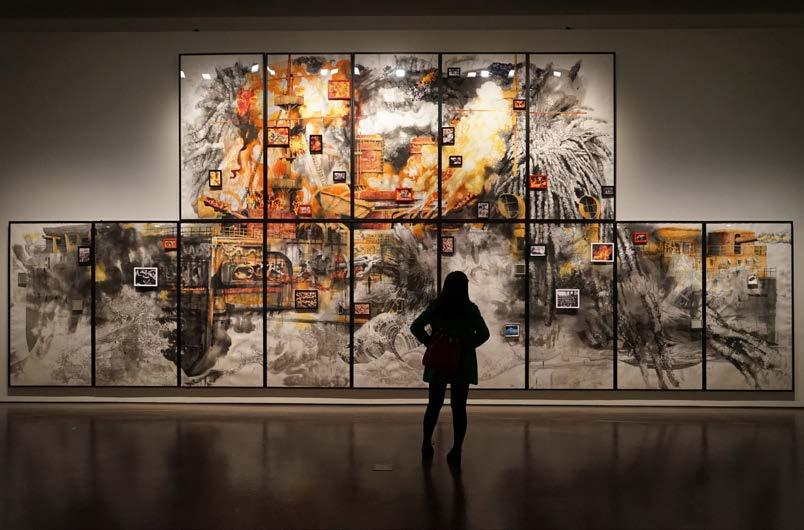
It was a Friday evening in February when I walked through the streets of our neighborhood. Alongside an abandoned building covered in graffiti, I stumbled upon six large A2-sized woodcut portraits, plastered onto the wall. It had been quite some time since they were put up; some were torn, most had turned a brownish hue, weathered by wind and rain. Above the artworks, there was written the title: “A Papermonument for the Paperless.”
One of the A2 posters contained an explanation of the artworks: “A Papermonument for the Paperless is an homage to undocumented refugees. Its purpose is to quite literally give them a public face.” The Dutch artist Domenique Himmelsbach, collaborating with the Refugee Collective We Are Here and a group of 19 artists, initiated the project and created more than 60 woodcuts of undocumented, paperless refugees in 2016. Since then, the artworks were spread in the cities of Europe and beyond, also in Thessaloniki.
A message scrawled next to the portraits said:
HELP! Help make this paper monument grow by hanging one or more portraits from this publication in a public place. Cut the portraits loose and hang them in your window, at your school or work, or stick them around your local area using wallpaper glue.
So we decided to renew the Paper monuments in Thessaloniki, printed out the portraits and placed them in different locations around the city.
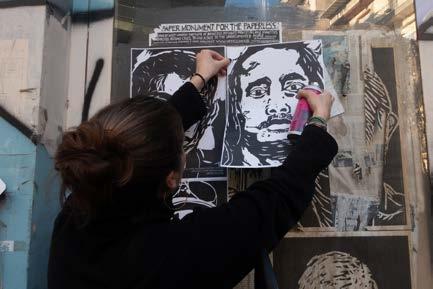
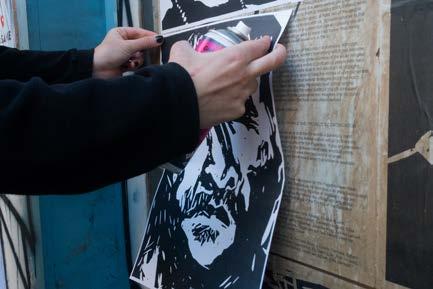

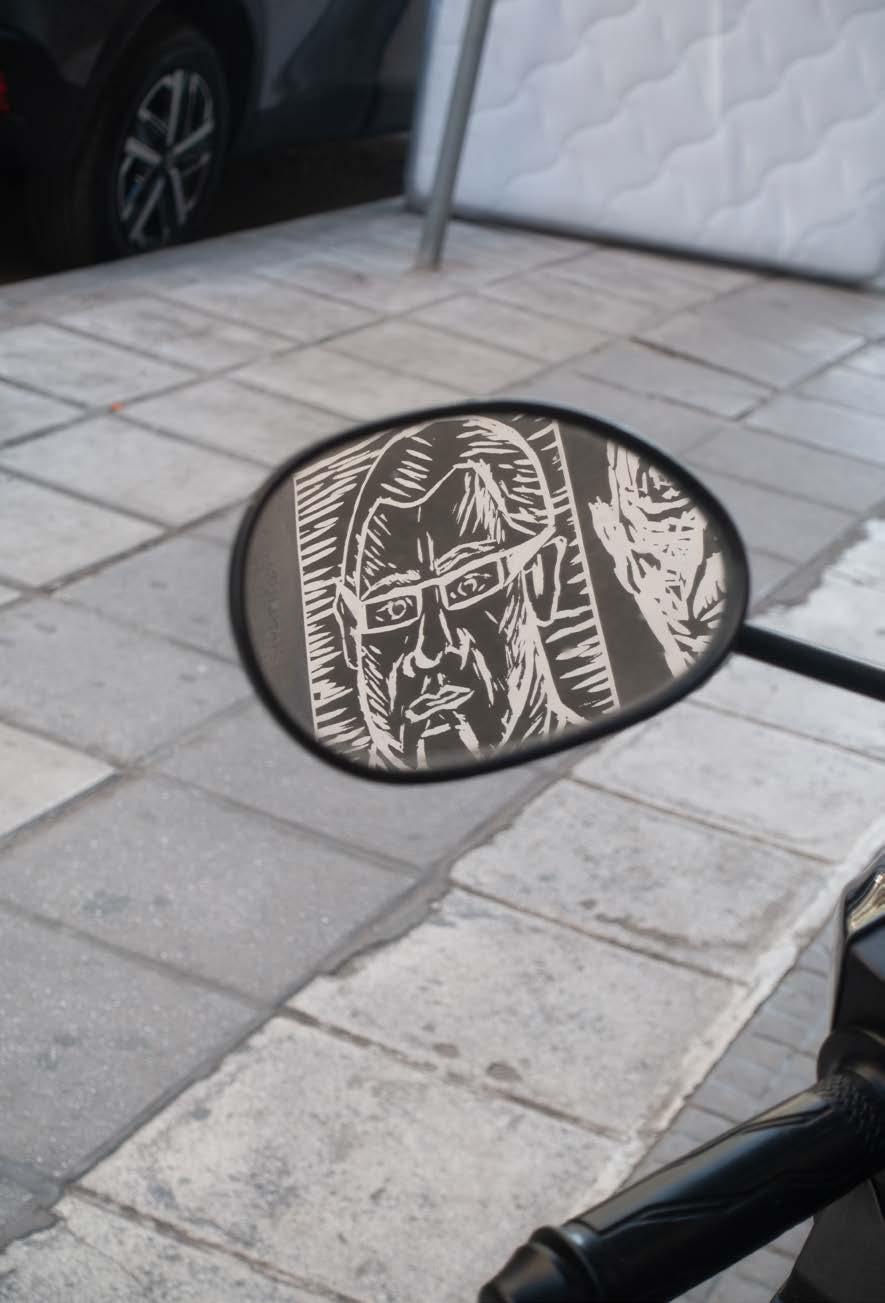
those who ventured from their homeland well-knowing the risk and still wishing for the better the ones finding their hope dwindling when realizing that a document they don’t own defines their worth the ones standing in front of closed doors refusing them a sense of belonging the ones that were promised we leave no one behind! and exactly this promise being undermined the ones hiding because their simple existence can cause them troubles can risk their lifes the ones always ready for being told to leave
the breeze today brought back memories of home and it made me think of those who no longer remember what home feels like even though they cannot because what they used to call home is not a home anymore
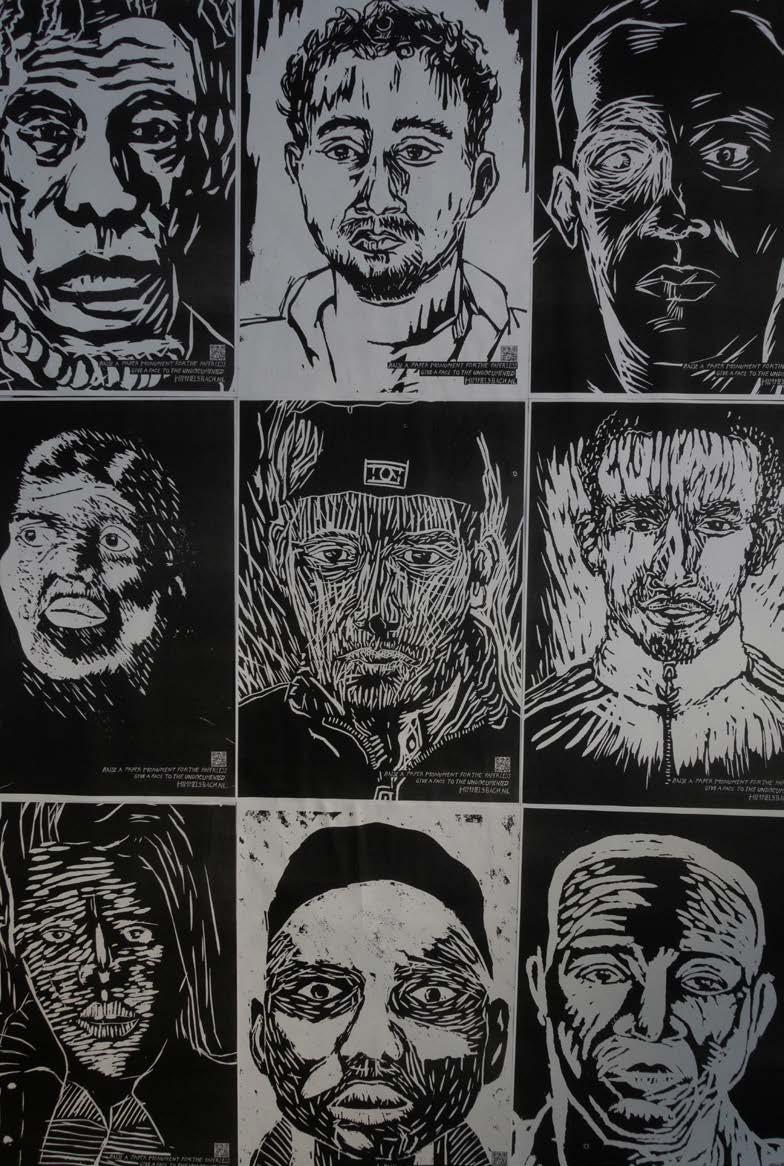
I have never been outside the camp, I am afraid that if I leave the camp, the police might ask for my documents and will deport me back to Türkiye and then to Afghanistan. And then I will have no choice but to commit suicide.”
Hakim*, a 17-year-old boy from Afghanistan, now living in Lesvos CCAC, unregistered
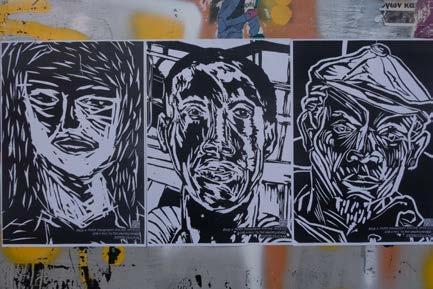
”Please tell them that without papers, there is no life and that we left everything to seek asylum here.”
Qasim*, a 17-year-old boy from Pakistan, now living in Thessaloniki
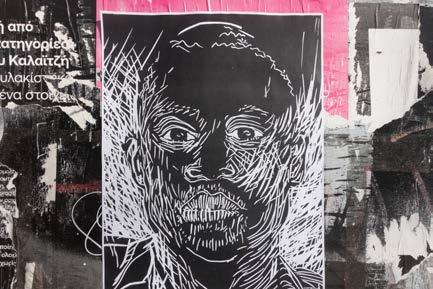
“I lost my family in the war and I came to Greece where there is peace - here I don’t feel that someone will come to kill me, but I am not calm because I still don’t have papers and I don’t know where fate will take me.”
Ahzar*, a 17-year-old boy from Syria, now living in Thessaloniki
“If I had papers, I would go to school - as long as I don’t have papers. I don’t know what to do with my life.”
Faizan*, a 18-year-old boy from Pakistan, living in Thessaloniki, unregistered

‘‘I try to forget the pain inside me but I still feel I’m in danger because I don’t have my papers yet.”
Ahzar*, a 17-year-old boy from Syria, now living in Thessaloniki
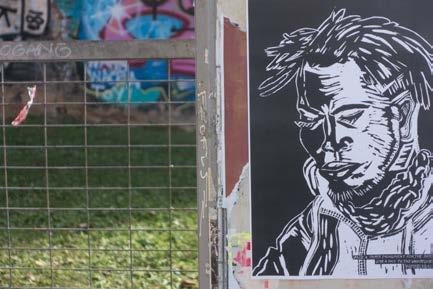
The quotes stem from the report “Without Papers, there is no life”, published by the Greek Council For Refugees and the NGO Save the Children. *name changed to protect anonymity

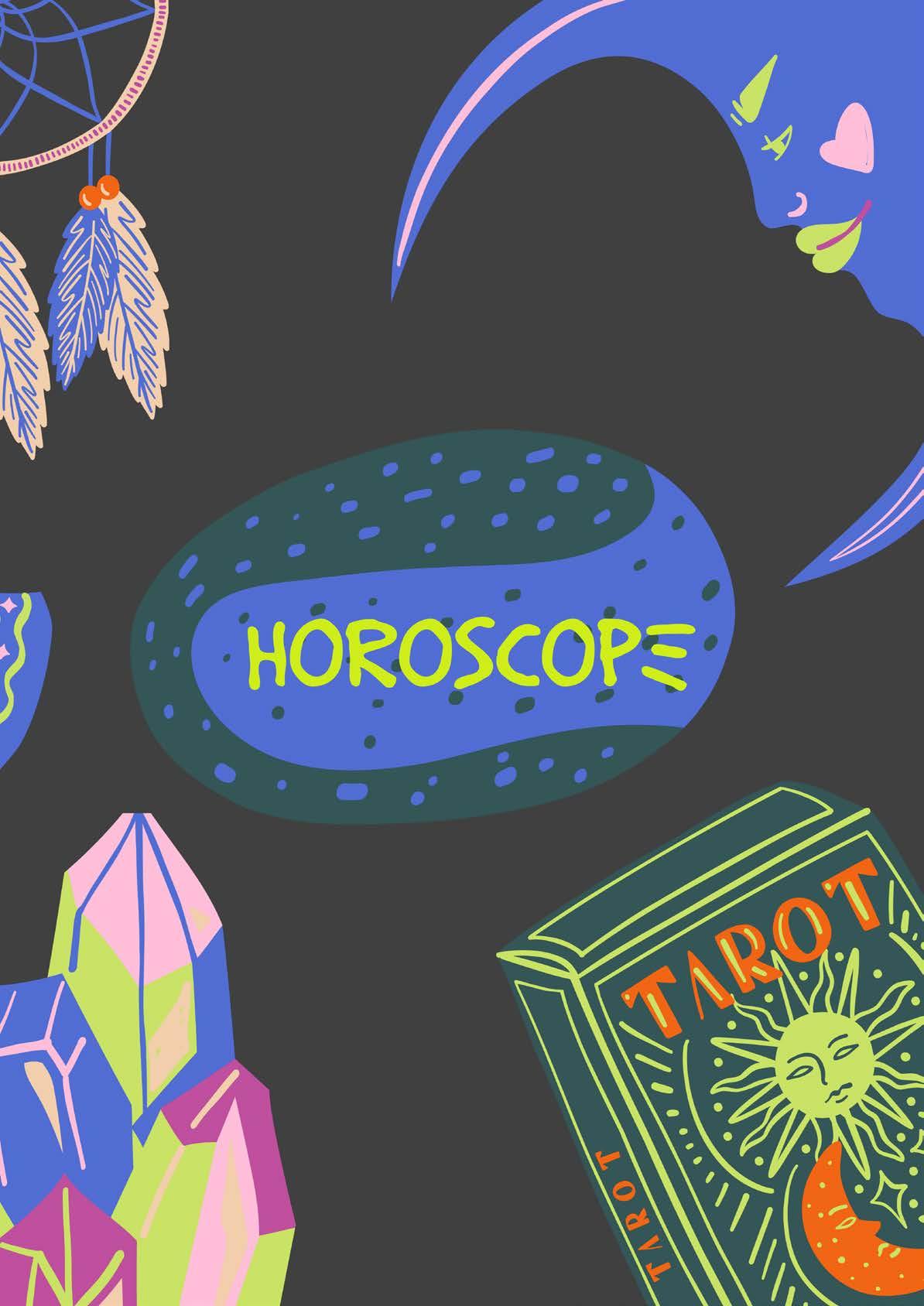
Aquarius Dates:
January 20 – February 18
I n 2024, Aquarius, prepare to ride the waves of change that will propel you into a whirlwind of positive transformations, igniting a creative frenzy and an unstoppable surge of inspiration. However, the key lies in your willingness to take that step forwardς. Embrace the dynamism of busy times, but also seek solace and rejuvenation in the calming depths of the ocean when feelings of overwhelm or sadness arise.This year, prioritize self-discovery and career advancement. Instead of forcing connections, allow authenticity to guide your interactions. Be true to yourself and embrace the freedom to express your individuality. As a air sign navigate the unpredictable currents of change, trust in the rhythm of your windy creative soul to guide you towards a fulfilling and successful year.
Pisces Dates:
February 19 – March 20
Your emotional nature, heightened by Neptune, will lead you into frequent heated political discussions. Utilize your typical Piscean diplomatic skills to engage in constructive conversations. An upcoming debate in the middle of the year will challenge your ability to separate rational arguments from emotional reactions. Use your emotional intelligence to understand diςfferent perspectives and maintain a cool head when others lack the empathy you possess.
Aries Dates:
March 21 – April 19
Be the change that you wish to see in the world,” dear Aries in 2024. Your dynamic spirit takes center stage this year. Embrace your innate leadership; your bold initiatives will shape the world around you. Fear not the challenges, for your courage and passion will be the driving force for positive change. In every action, embody the transformation you desire, creating ripples that redefine your path and the world you inhabit.


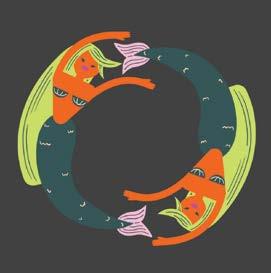

Taurus Dates:
April 20 – May 20
When activist artist Frida Kahlo painted, the world admired as her artworks became mirrors reflecting her soul’s struggles. Uncertain of her vulnerability yet determined, she used her creativity like a weapon against injustices. These times call for you to embrace your inner activist, delve into your creativity, and harness your strength in the fight for justice and equality.

Gemini Dates:
May 21 – June 20
This year, Gemini, your passion for communication aligns with a call for change. Engage in activism with your eloquence and adaptability. Collaborate with like-minded individuals to amplify your impact, and don’t shy away from expressing your unique perspectives. Your versatility can bridge gaps and inspire others to join the cause. Stay open-minded, and your advocacy efforts may reach new heights.
Cancer Dates:
June 21 – July 22
“ To leave home is to grow, to return is to understand”. This year, dear Cancer, you will have the opportunity to ask yourself what home means to you. Your mind is a book filled with adventures and romance, all written through your detailed imagination. Are you only reading or also living? This is the time to ask yourself what you win and what you lose when you leave home. New opportunities will knock on your door this year and you will have the freedom to choose if you want to stay or to leave. Remember, dear Cancer, there are no regrets when the decision comes from the heart.

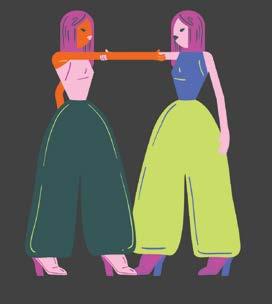
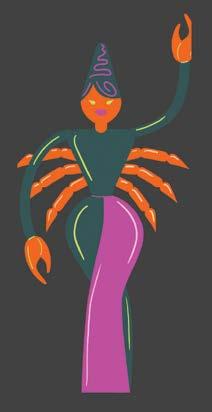
Leo Dates:
July 23 – August 22
Dear Leo,
You are the King of all animals. You can rule and take all decisions. You decide who will be eaten and who will not. But this year instead of a King, try to be a Leader. To understand their needs and take decisions with wisdom. To be empathetic and try to be more helping. And you will see that this will be more fulfilling than having the tummy full and every time less and less animals to rule.

Virgo Dates: August 23 – September 22
In the intricate tapestry of life, Virgo, your thread is woven with precision and care. As the stars align, they whisper a reminder: amidst the chaos, prioritize discernment and attention to detail. Recall the wisdom of an ancient Chinese proverb: “The gem cannot be polished without friction, nor man perfected without trials.” Embrace the challenges ahead as opportunities for growth and refinement. Remember, your strength lies not only in your meticulous planning but also in your adaptability to unexpected twists. Stay grounded, and let your inner compass guide you through uncertainty.


Libra Dates: September 23 – October 22
You find yourself at a crossroads between diplomacy and confrontation. Your innate balance positions you as a mediator in tense situations. It’s time to use your ability to find fair and equitable solutions amidst discord. Keep an open mind and your heart in the pursuit of social harmony. Your capacity to weigh different viewpoints will be crucial in the social arena in the weeks ahead. Use your influence to promote constructive dialogue and justice.

Scorpio Dates:
October 23 – November 21
In 2024, team work is going to be in the spotlight. You’re going to start the year with new goals and projects. We will expect the best from you but still with a lot of freedom appreciated as an independent person. By April, things will get calmer and even if your professional project isn’t a priority anymore, you’ll take more time for your personal goals.

Sagittarius Dates: November 22 – December 21
As Plato said, “the price of apathy towards public affairs is to be ruled by evil men”. This 2024 you are going to find a legitimate and fair cause to defend. Take your time, listen to your surroundings but also to yourself and choose it wisely. By the end of the year, Sagittarius will start seeing the first rewards of your fight for justice and will have renewed energies for it. The process will have some insecurities, ups and downs, but the reason is worthy enough to try to fight for it. Do your best, the world needs you!

Capricorn Dates: December 22 – January 19
You find yourself at a crossroads between diplomacy and confrontation. Your innate balance positions you as a mediator in tense situations. It’s time to use your ability to find fair and equitable solutions amidst discord. Keep an open mind and your heart in the pursuit of social harmony. Your capacity to weigh different viewpoints will be crucial in the social arena in the weeks ahead. Use your influence to promote constructive dialogue and justice.



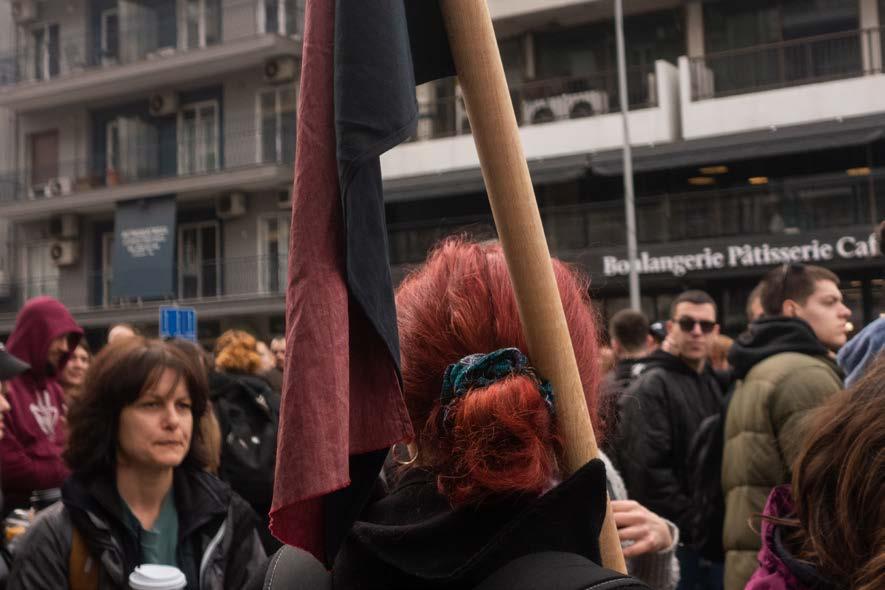
 © Lale Khoshnoud
© Lale Khoshnoud

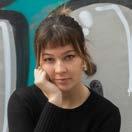

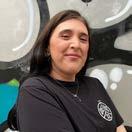

Alessia Mancino, 25 years old, Italy
Friederike Schulz, 18 years old, Germany
Ken Maciej Starczewski, 27 years old, Poland
Madlén Batsiou, 31 years old, Greece
Mariami Gatenashvili, 25 years old, Greece/Georgia

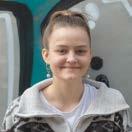
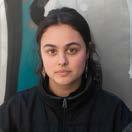
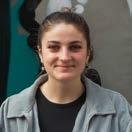
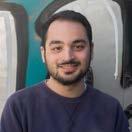
Balkan Beats, a part of Balkan Hotspot
B alkan Hotspot is the ESC (European Solidarity Corps) project of “United Societies of Balkans”, a NGO founded in Thessaloniki in 2008 by a team of active young people.
The Balkans and Eastern Europe are geographical regions with many cultural features which offer a broad spectrum of actions and youth involvement initiatives. The organization was created as a response to the pressure of constant
www.balkanhotspot.org
Alix Ibar , 26 years old, France
Iryna Stryha, 22 years old, Belarus
Lale Khoshnoud, 20 years old, Germany Luise Meerheim, 19 years old, Germany
Uxío Fernández Ferrás, 23 years old, Spain
changes in the Balkan and Eastern European region and under the need for the creation of a better social environment.
K ey areas of the organization’s activities concern the defense of human rights, the organization of youth exchanges and training courses, which will bring young people from Balkans and Europe together, the organization of local educational seminars and multimedia production.
This magazine is distributed free of charge.

General Directors:
Aristodimos Paraschou
Christian Cibba
Graphic Designer:
Anna-Maria Diamantidou
Find us:
www.balkanhotspot.org
Usb_ngo.gr
Editors: Luise Meerheim, Alix Ibar

The volunteers responsible for this publication are hosted in Greece in the framework of the European Solidarity Corps. This project has been funded with support from the European Commission. This publication [communication] reflects the views only of the authors, and the Commission can not be held responsible for any use which may be made of the information contained therein.